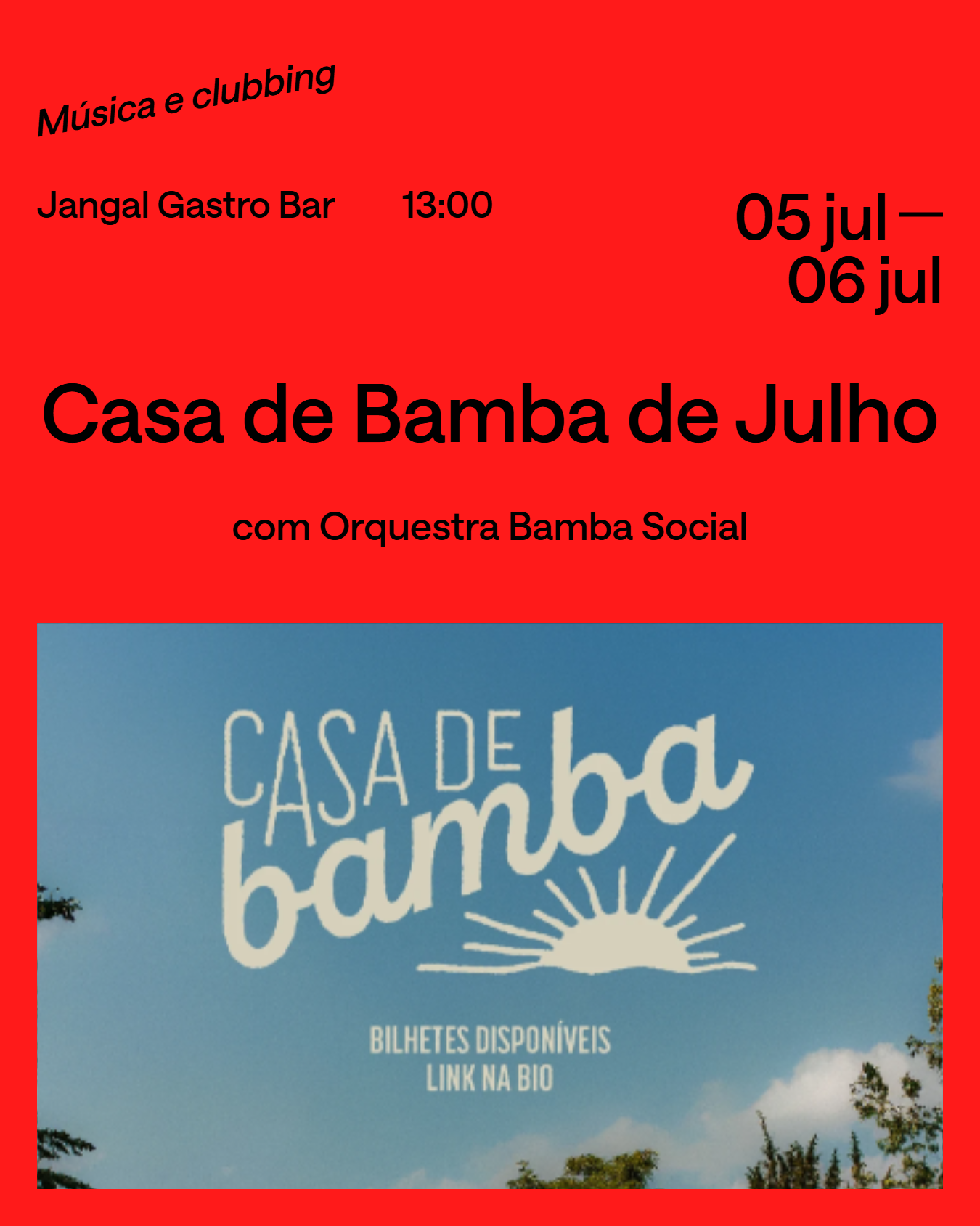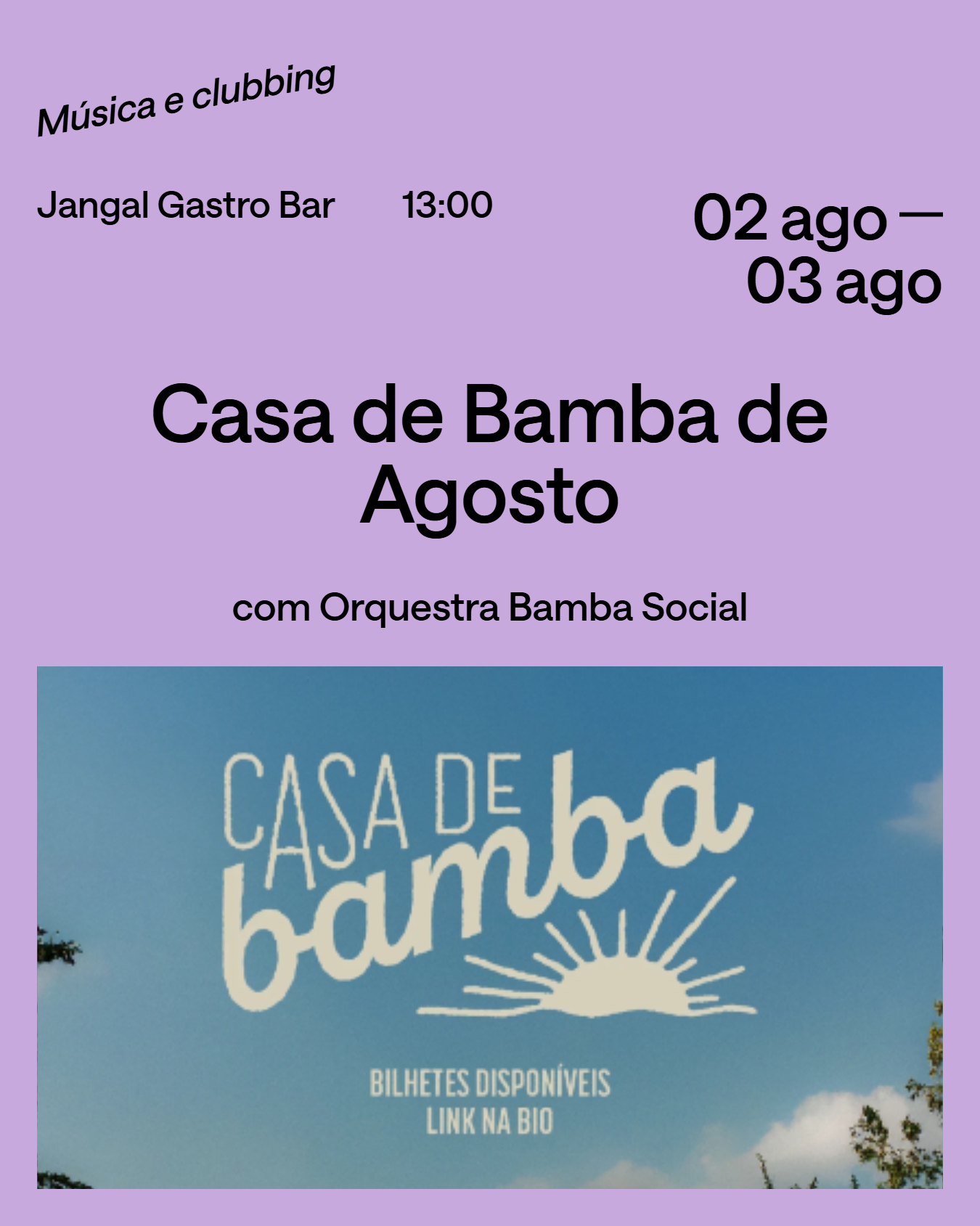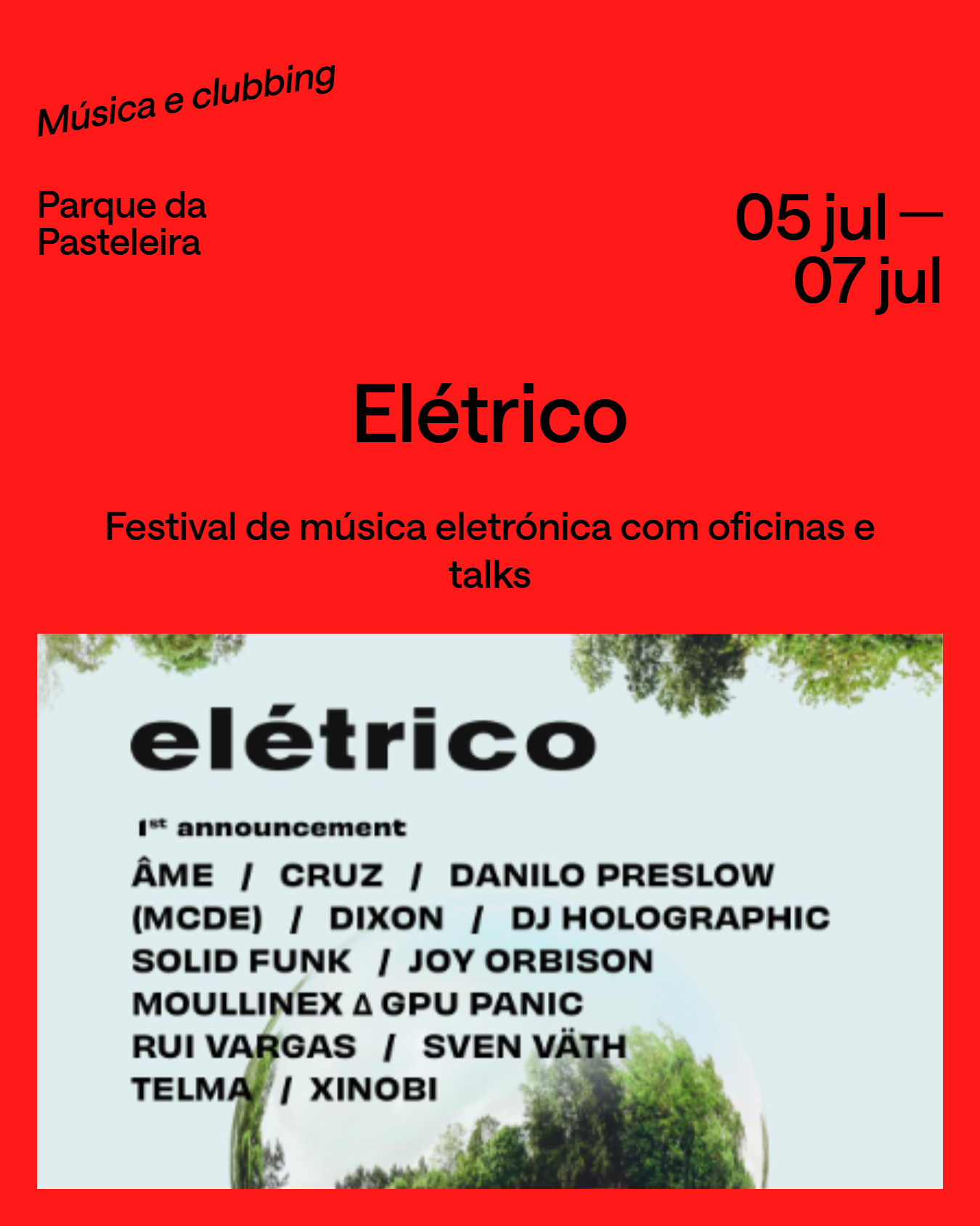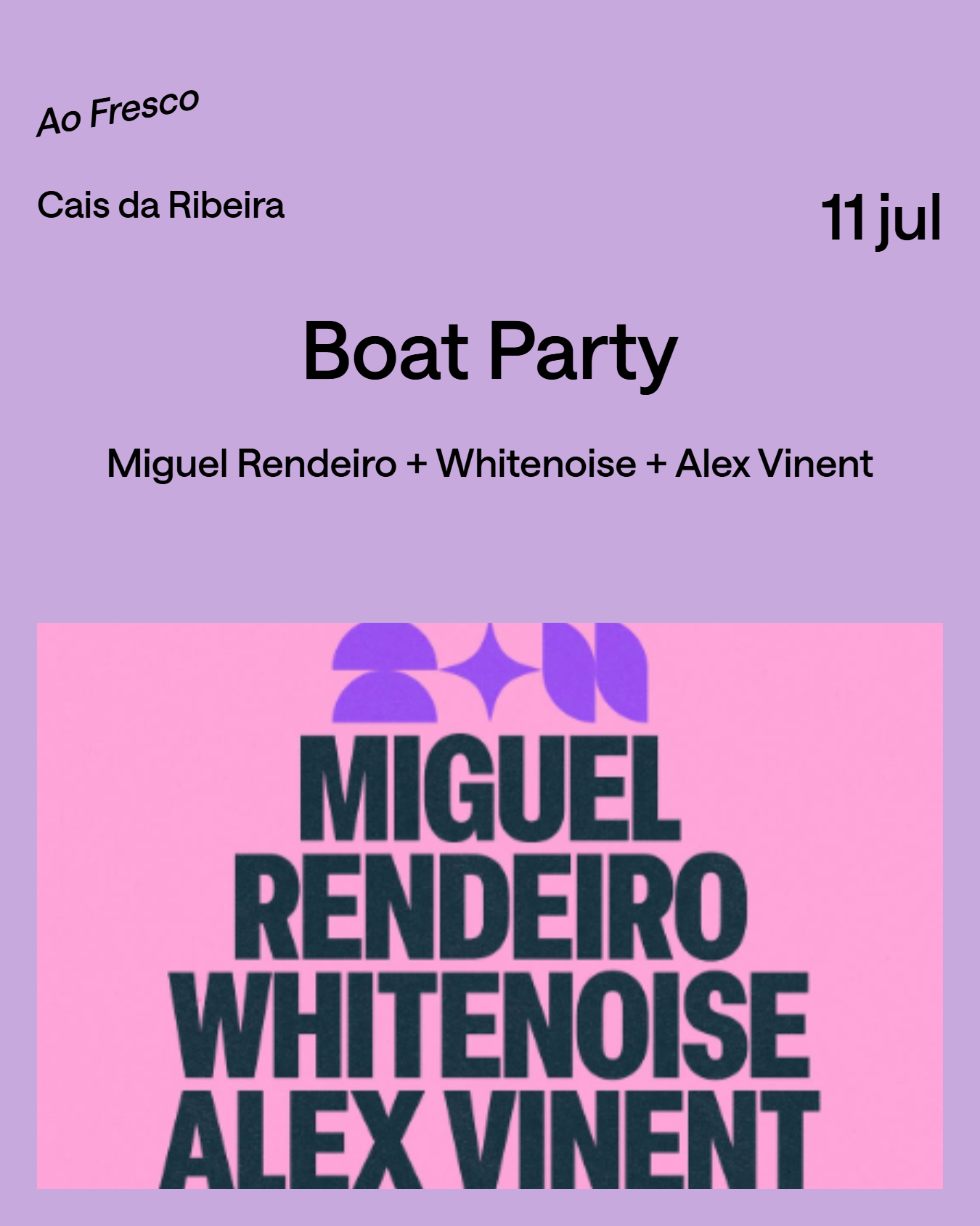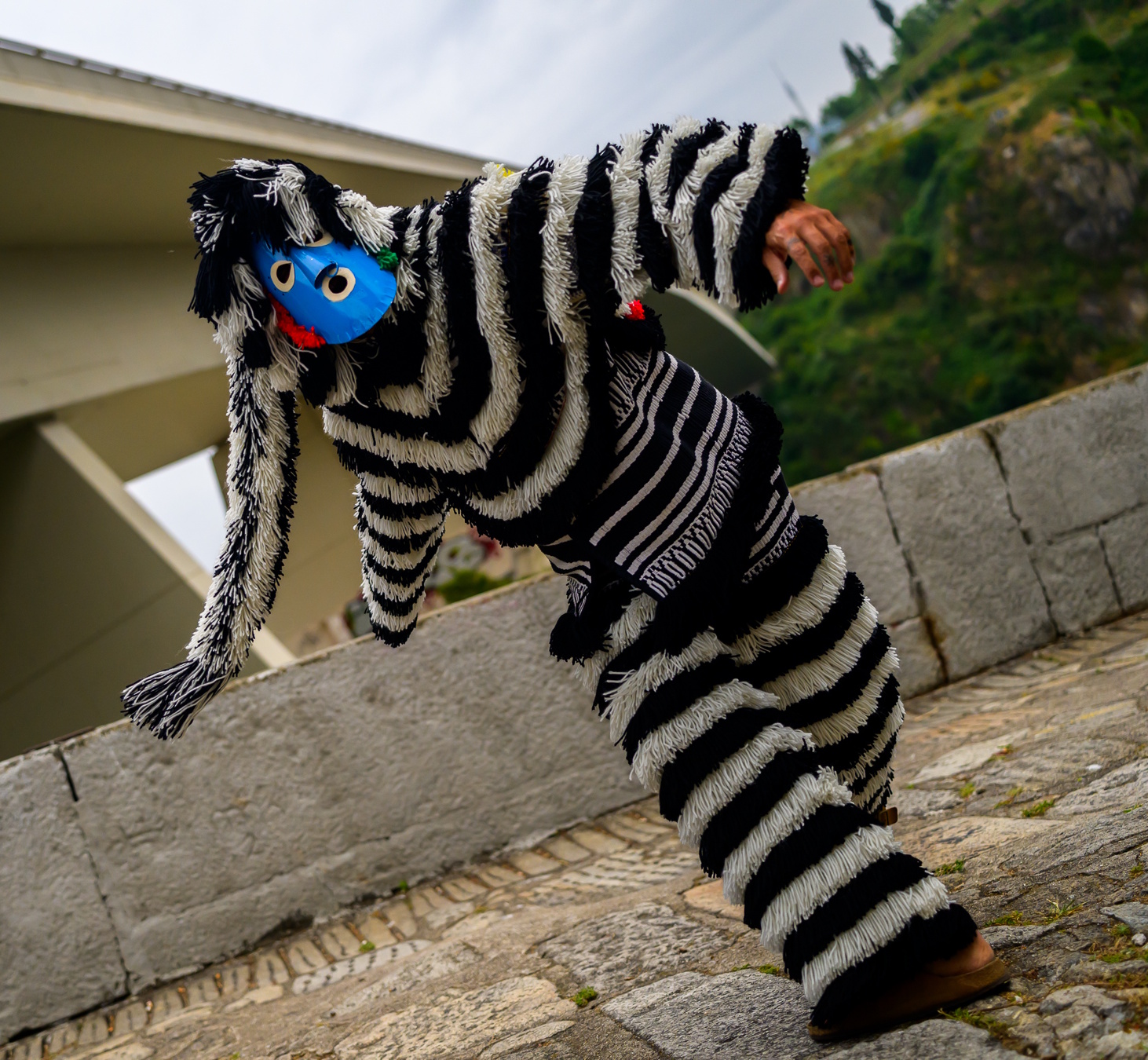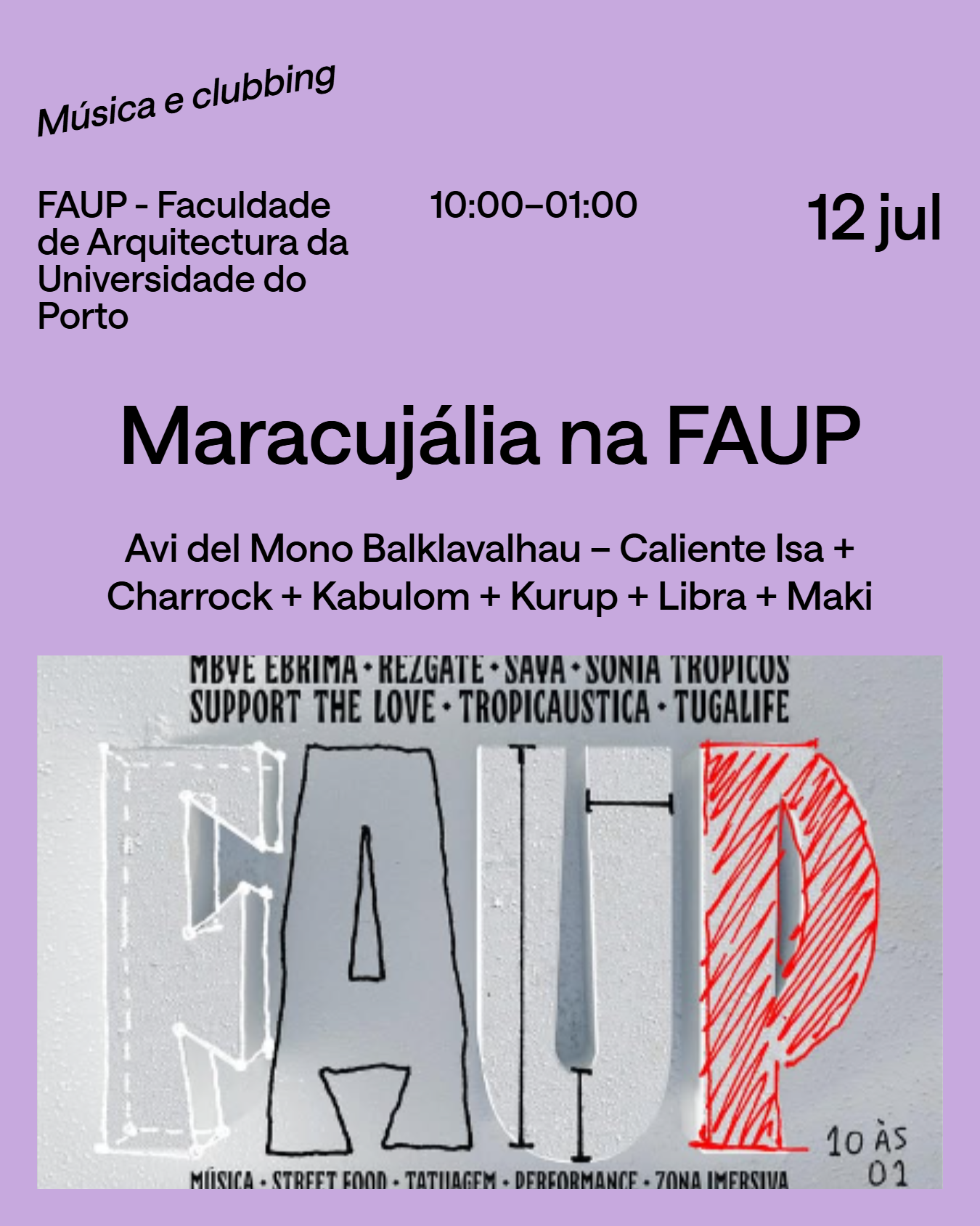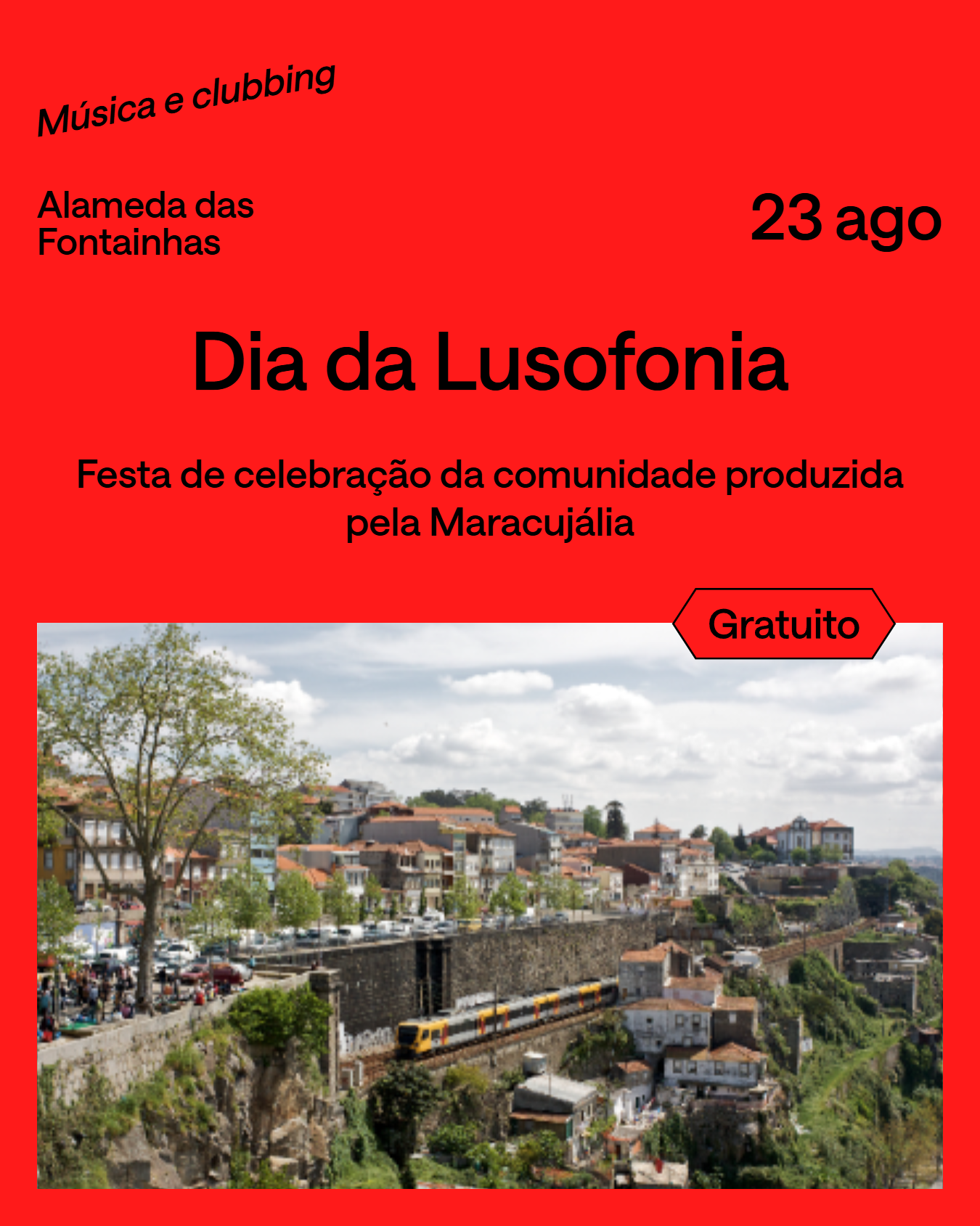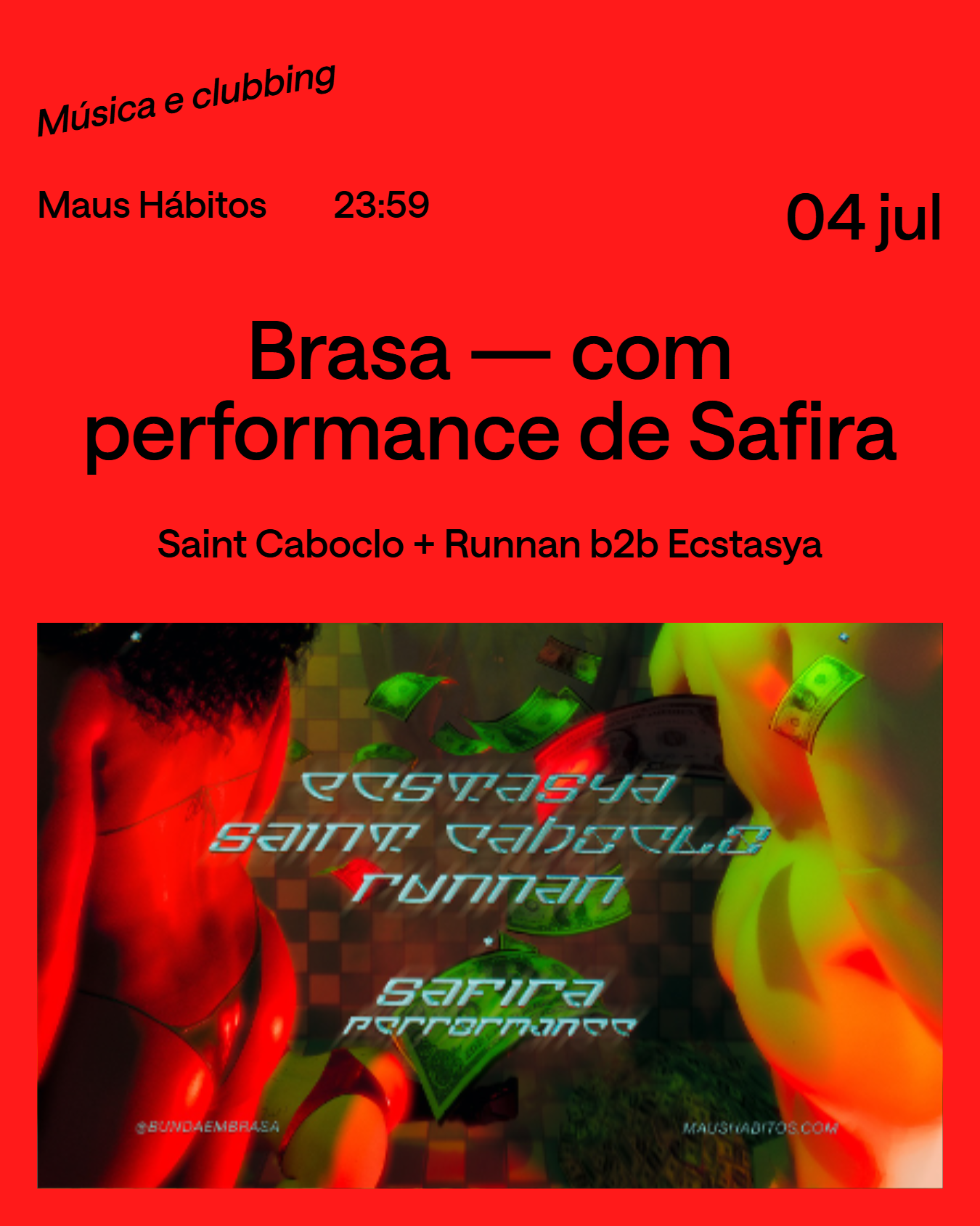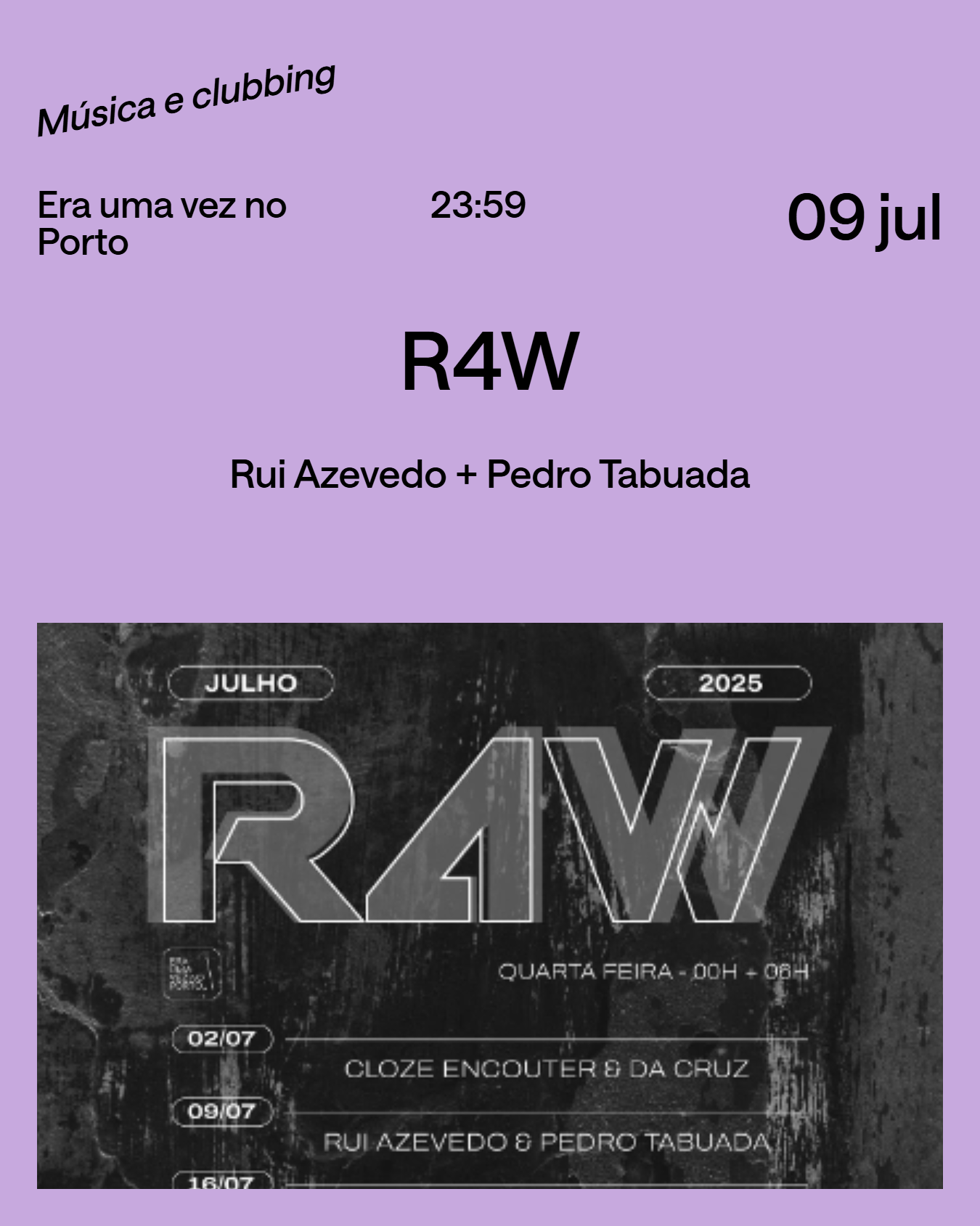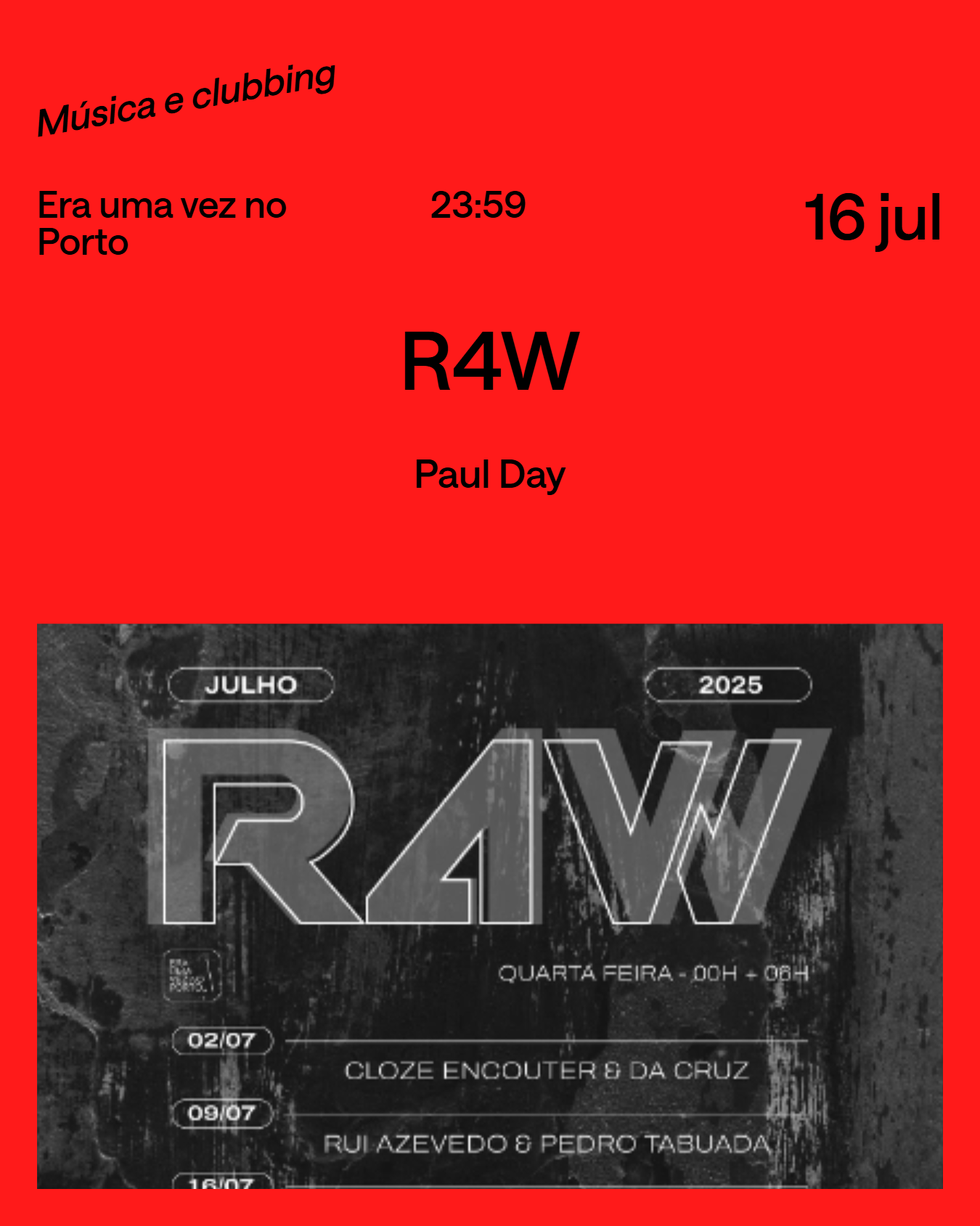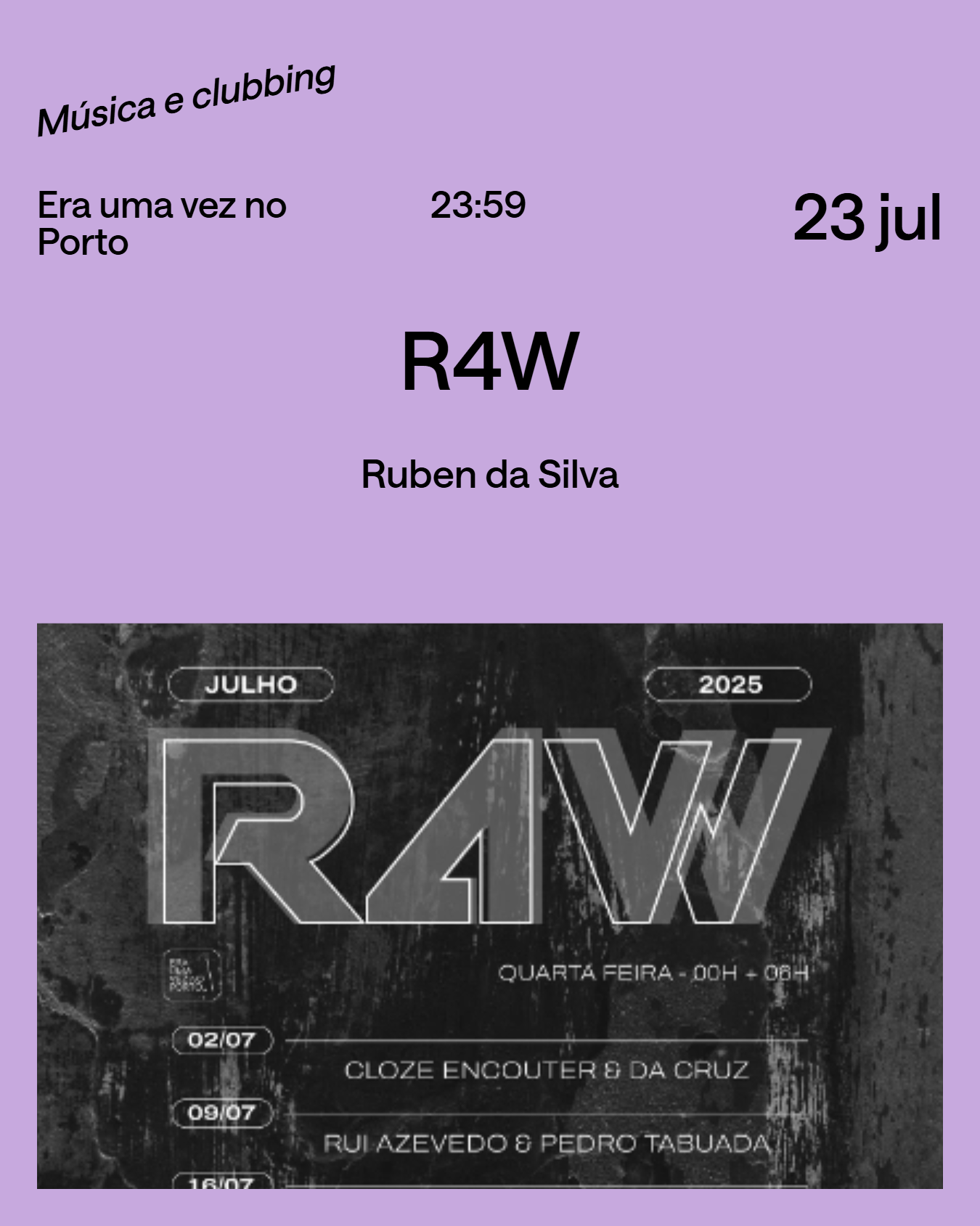EN

The word “party” is broad enough to encompass different types of events that have as their common denominator the fact that they are celebrations of joy. Long days invite this more euphoric side to mass gatherings where conversation takes place through the language of dance. We spoke to six promoters who use the word “party” in their own unique way, and took note of the upcoming dates.
Orquestra Bamba Social
When Bamba Social was not yet an orchestra, every Thursday, the door of the Baixaria bar would see a line grow for a night of samba and Brazilian Popular Music (MPB) featuring five to six musicians—it was 2012. Pedro Pinheiro, a founding member, recalls how “at the time, there was a revival of interest in Brazilian music, largely due to the success of artists such as Seu Jorge and Marcelo D2.” Over the past 13 years, the family has grown. "A saxophonist joined us in the second or third edition. A few editions later, Tiago Nacarato joined us to sing, even before he participated in The Voice.”
Today, the Bamba Social Orchestra is a logistical octopus—17 members make up the full orchestra, but also the smaller number of the Roda de Samba format. Pedro assures us: “It’s better to start using condoms because we reproduce very quickly.” The image of the octopus is evoked by both Pedro and Miguel Camelo, who is responsible for producing Bamba’s shows: “Coordinating the tentacles that are 17 musicians sometimes becomes such a heavy burden that it actually becomes light.” Pedro Pinheiro decodes: “What unites us is friendship and love for the project. When the scales measure the work against the satisfaction we get from it, satisfaction always weighs more.”
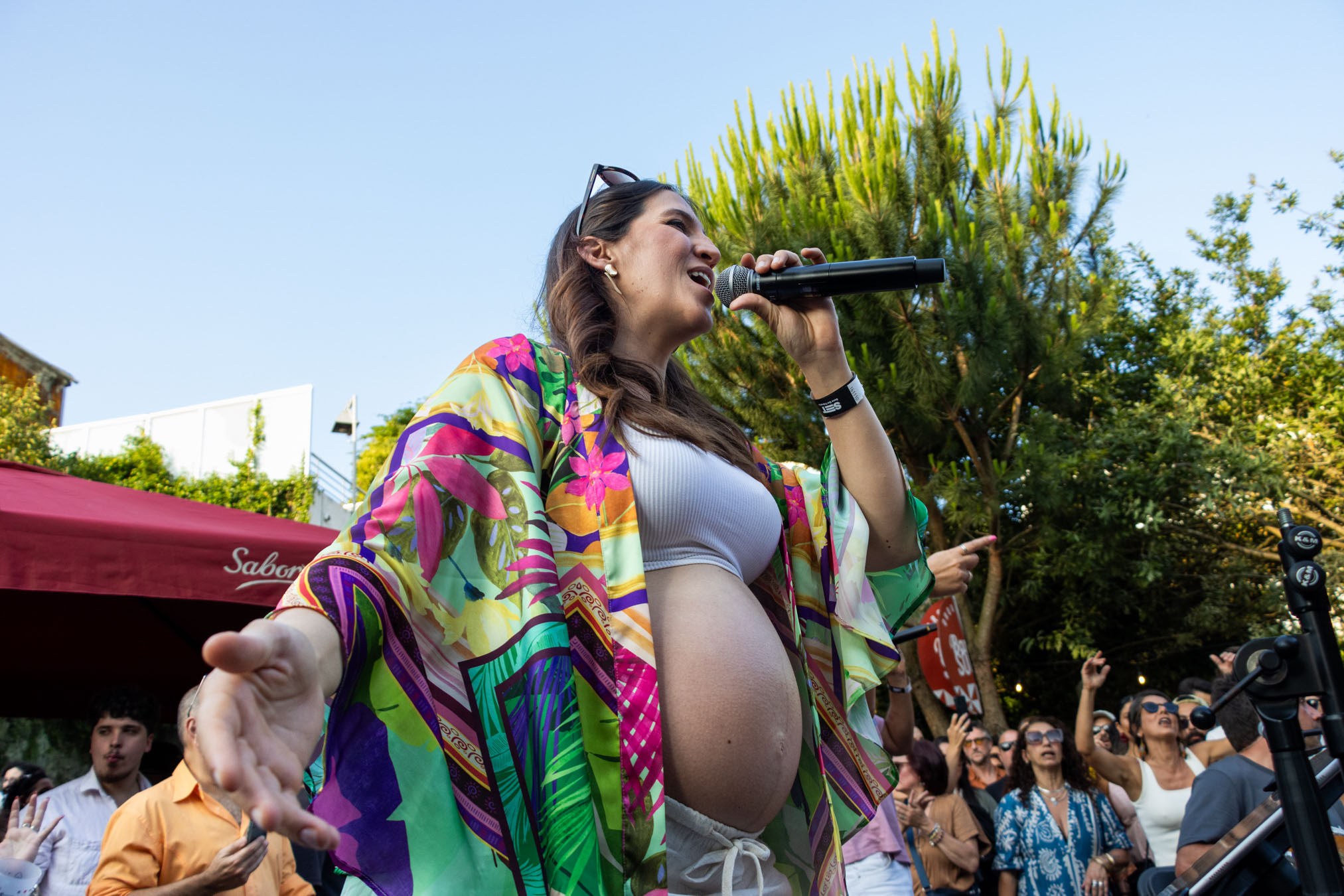
© Andreia Merca
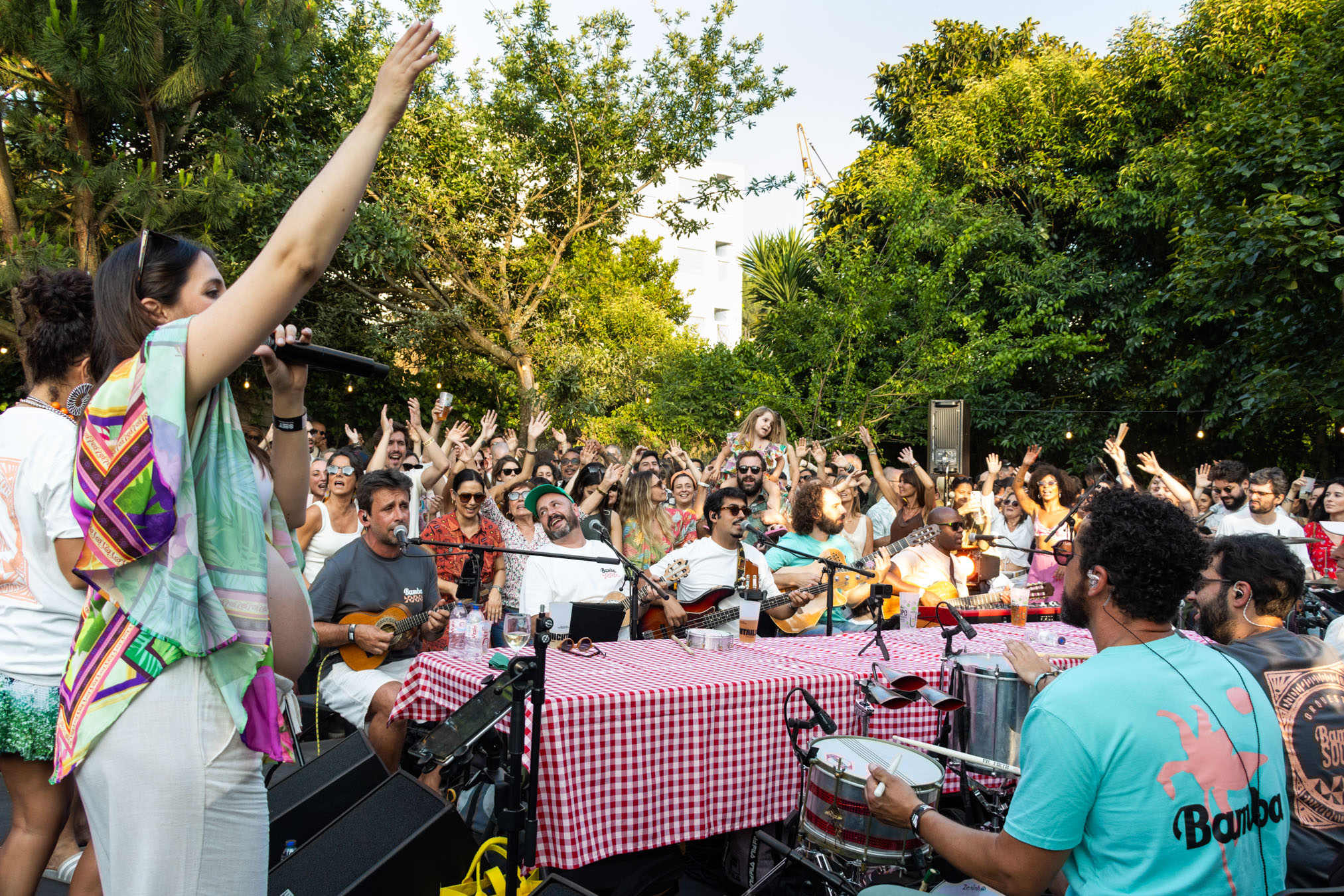
© Andreia Merca
In June this year, they launched the new Casa de Bamba format in the gardens of the Jangal gastrobar; these are monthly gatherings where the emphasis is on “joy and fun in safety.” With their previous experience of “Feijoada dos Bamba,” an annual event with food and an early start to the party, they realized the “affluence of different age groups and different energies,” leading them to now create a “more inclusive” format that allows for revelry throughout the day.
Starting in July, the Casa de Bamba parties will begin operating monthly for two days—with activities for children on the first day. Pedro explains that, just as the growth of the Orchestra was organic, this desire to create a space for children also arose naturally: “in the band, we are already at the age to start having children, and we saw this happening simultaneously with our audience.” The next dates for Casa de Bamba, at Jangal, are July 5 and 6 and August 2 and 3.
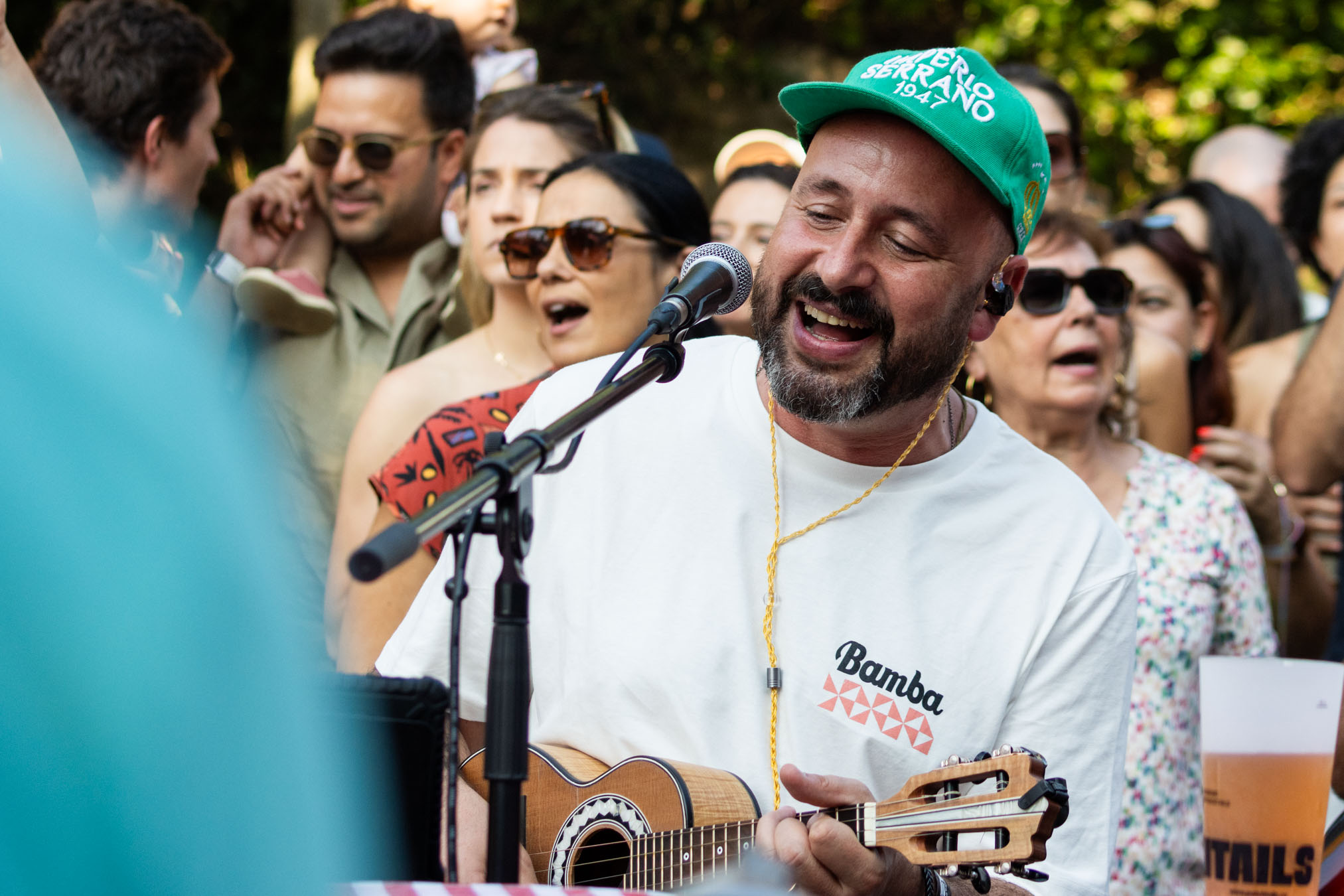
Pedro Pinheiro © Andreia Merca
RDZ
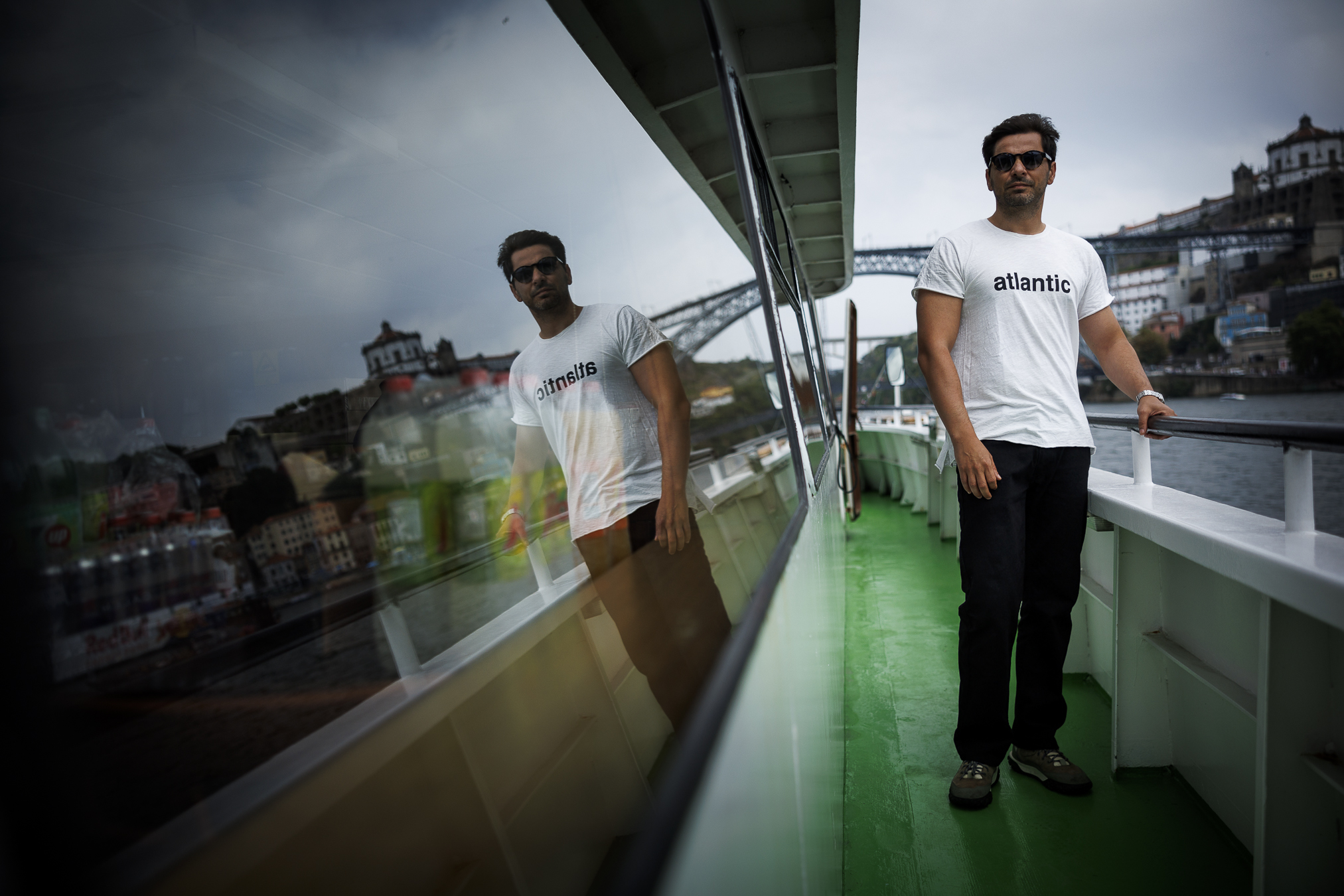
Rúben Domingues © Guilherme Costa Oliveira
In the sea of people who pass through Cais da Ribeira in any of the mild months, street musicians, acrobats, and photographers who promise the best vacation portrait compete with the Gaia houses to capture the visitor's gaze. But every month, something stands out among this vibrant mosaic: an ivory-white boat equipped with powerful speakers that emit cheerful, lively house music—another Boat Party about to set sail.
It is on board that we find Rúben Domingues, from the promoter RDZ. This promoter began in 2006, “as a joke,” when a group of friends organized some parties in iconic venues of Porto's nightlife, such as Swing and Indústria. It was in 2010 that RDZ's boat parties also began. Along the way, RDZ made a name for itself with events in unusual places, which have since become popular, such as the Fort of São João Baptista, the Monastery of São Bento da Vitória, and the Silo Auto.
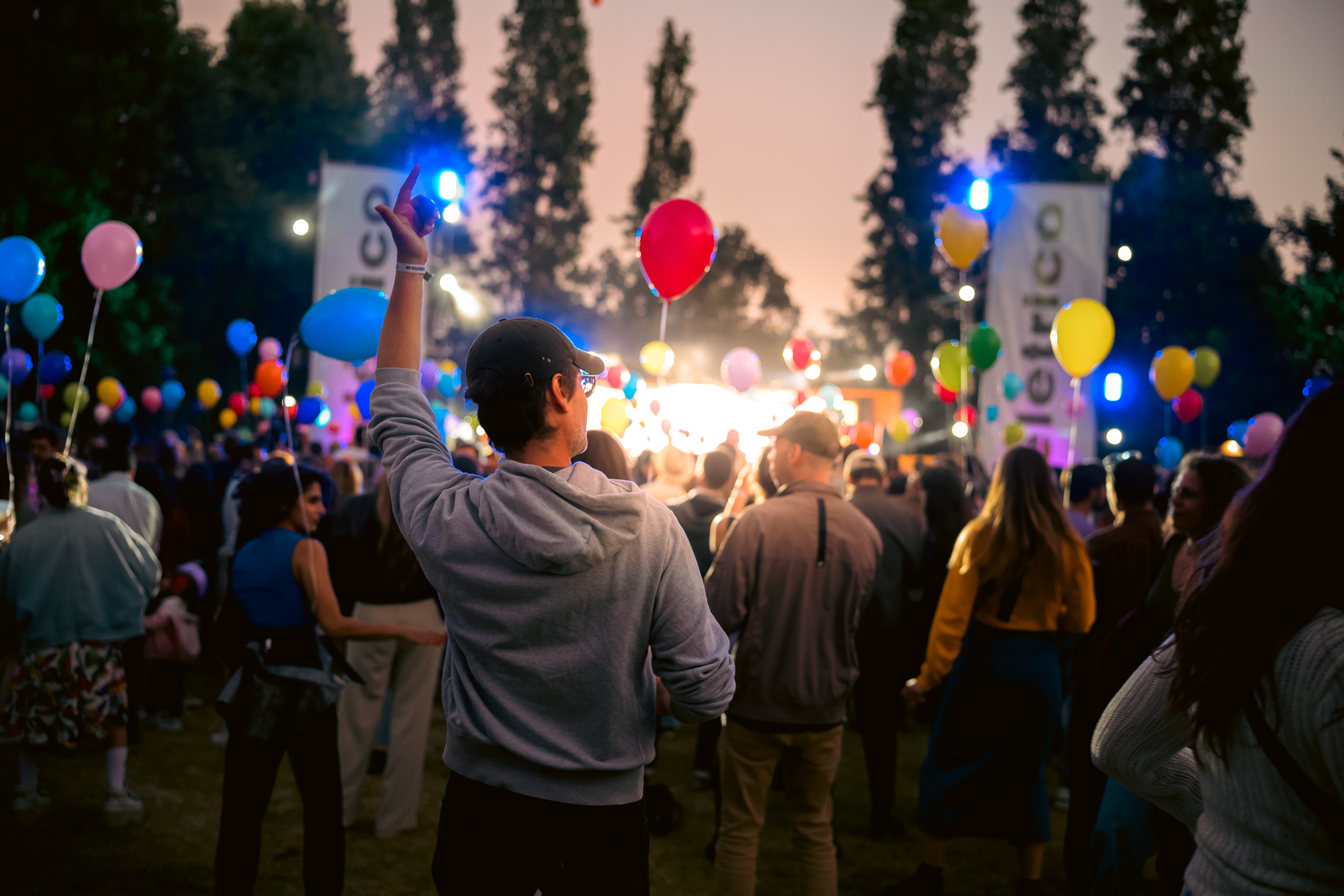
Festival Elétrico em 2024 © Nuno Miguel Coelho
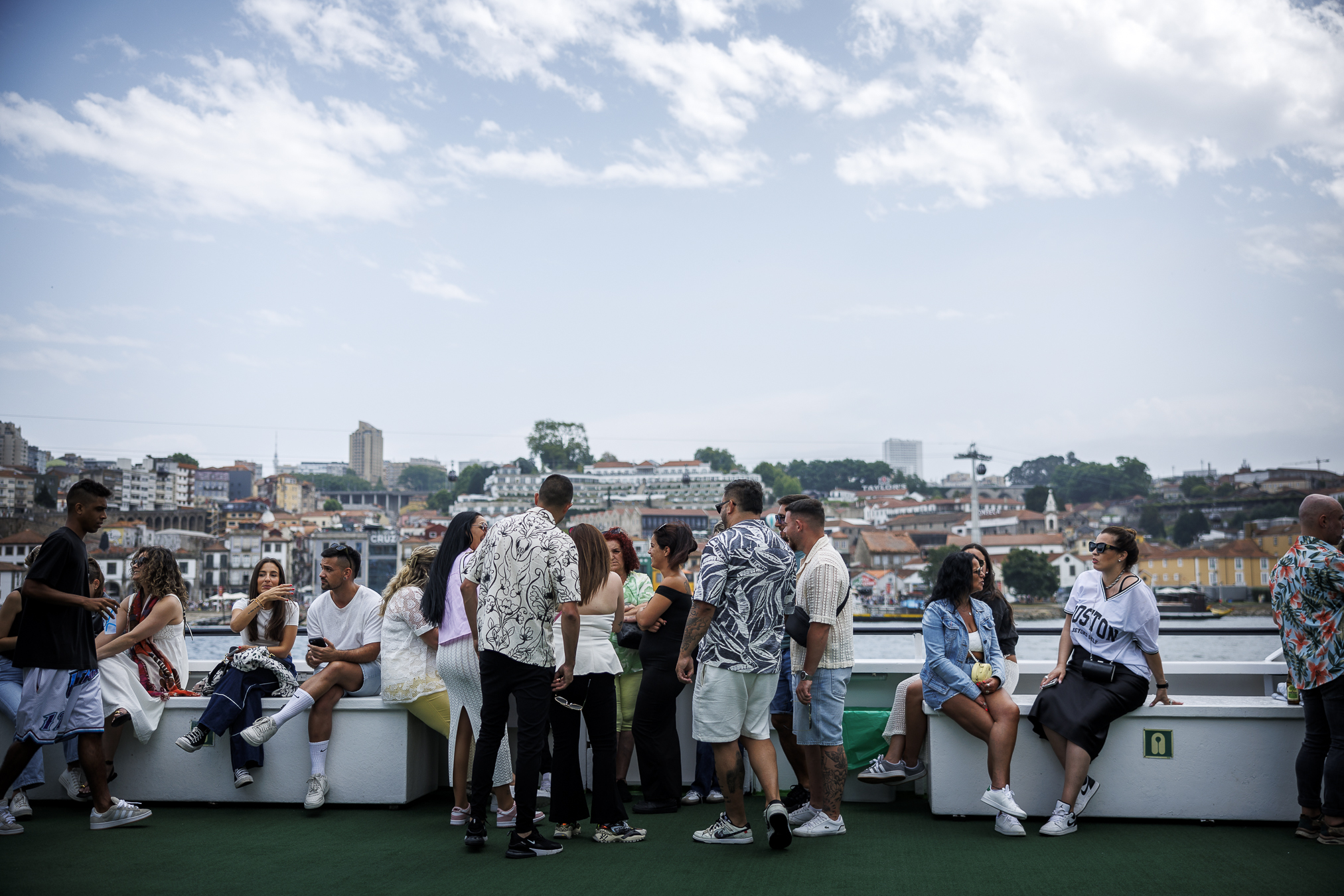
© Guilherme Costa Oliveira
Rúben admits that boat parties are special to him. “At any of our other events, I like to be on top of everything, always solving problems and working. Here, I just want to say, ‘Come on, guys, not on the boat! Sort it out!’” According to this promoter, what sets boat parties apart is the contemplative atmosphere provided by the banks of the Douro: “We play a cheerful, dynamic style of music with groove—not heavy, but not dead either—which, in addition to inviting people to dance, also allows them to contemplate the landscape around them.” The route is always the same: up the river, back to Foz for sunset at sea, and back to Ribeira in the early evening. The boat parties are monthly; the July party takes place on the 11th with Miguel Rendeiro, Whitenoise, and Alex Vinent. In August, it will take place on August 15, with the lineup to be confirmed.
In addition to the boat parties, another leading figure of RDZ is the Festival Elétrico. Since 2018, this three-day festival has landed at Parque da Pasteleira, where every year it has brought big names in dance music. With a distinct identity and target audience, Rúben admits that, deep down, “we do the festival for ourselves”—something that extends to creating a safe and joyful space for children, “especially since we are all parents now.” Alongside the big performances, the festival has mindfulness and yoga events, and a parallel program of talks. This year's edition takes place on July 4, 5, and 6 and will bring names such as Hercules & Love Affair, Moodyman, Adam Ten, and Chris Stussy to the city.
Maracujália
Maracujália takes its first steps on the path of Oiôba, a bikini brand. As a way of activating this brand, with a passion fruit as its identity, a series of parties were promoted with sounds from the Tropicália movement – resulting in the Maracujália parties. The popularity of these parties – with free admission and held in open-air venues – was overwhelming. Today, almost 10 years after its foundation, they attract a loyal audience on a medium scale, which, over 40 editions, has filled venues such as Casa das Artes, Casa da Música, and Alfândega.
To talk about the upcoming Maracujália parties, we had the opportunity to speak with Maracu—a mythical creature created by Maracujália as its spokesperson. Maracujália's DNA is evident in this character: he wears a costume produced by a craftsman from Podence, following the style of the caretos; the mask is African-inspired (and colored); and Maracu can be seen carrying a totem or staff with symbols of Brazilian ethnography. Here are the coordinates that serve to triangulate the devout tropicalism that gives all the airtime at parties to MPB, reggae, and funaná.
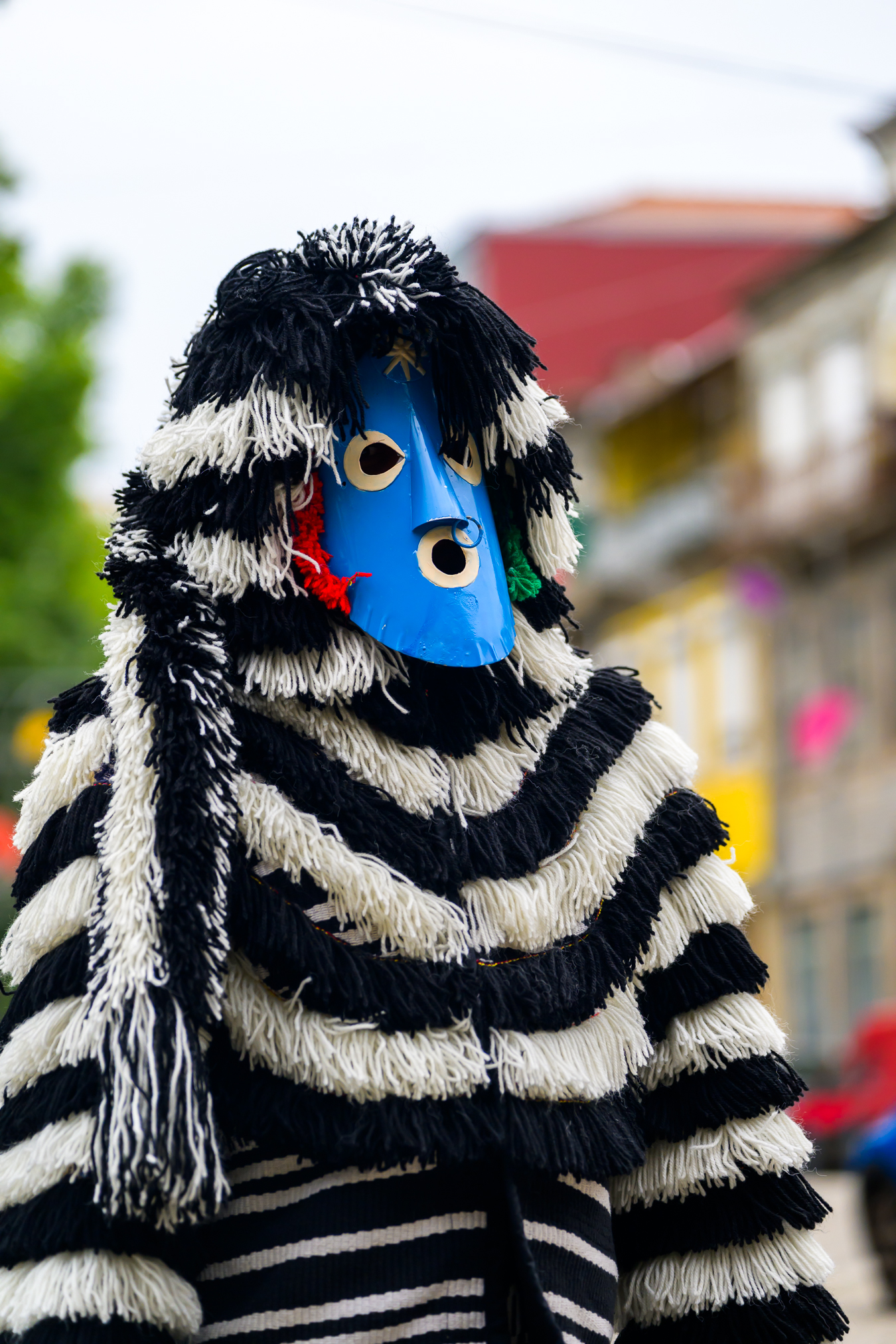
© Nuno Miguel Coelho
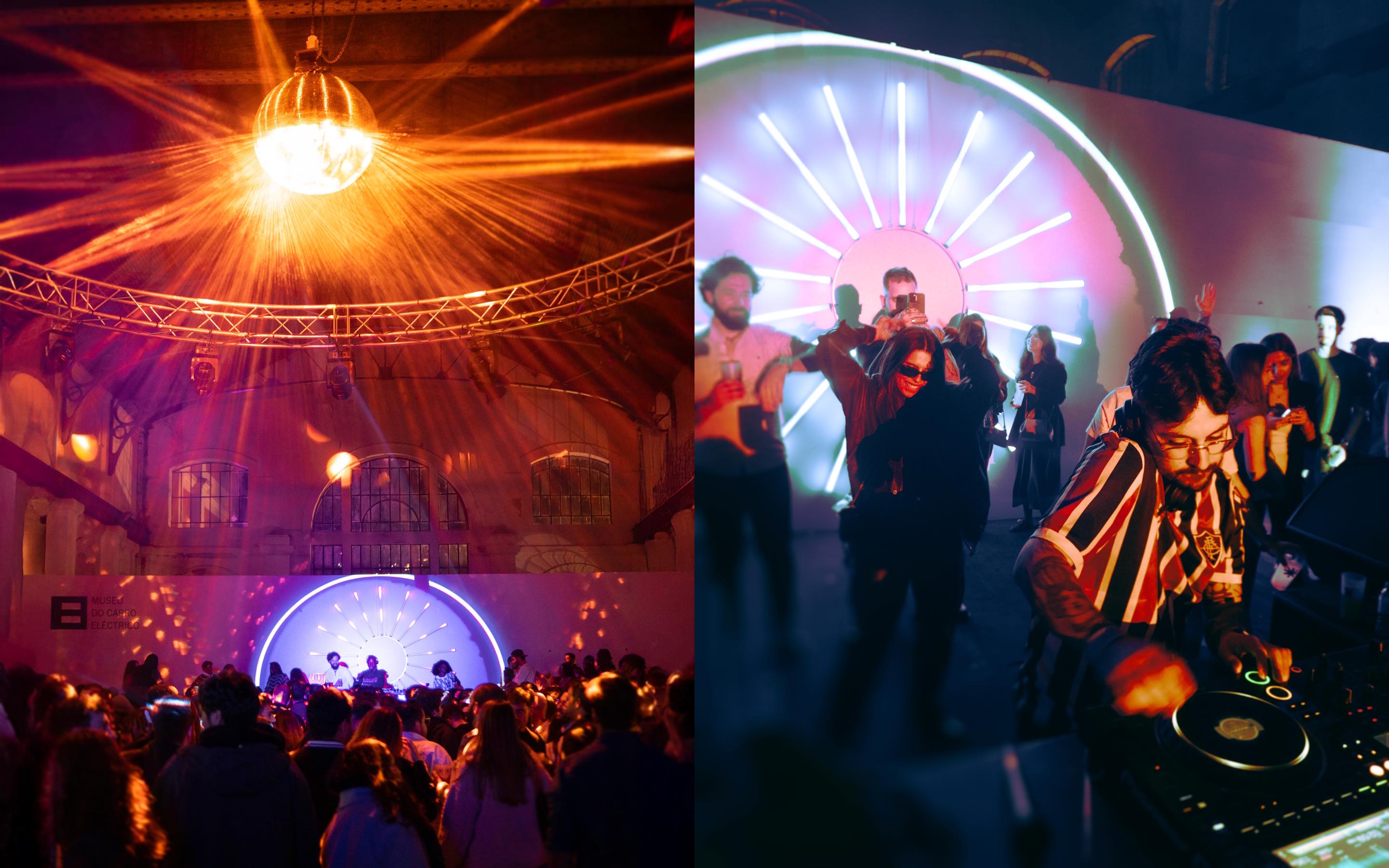
© DR
Brasa
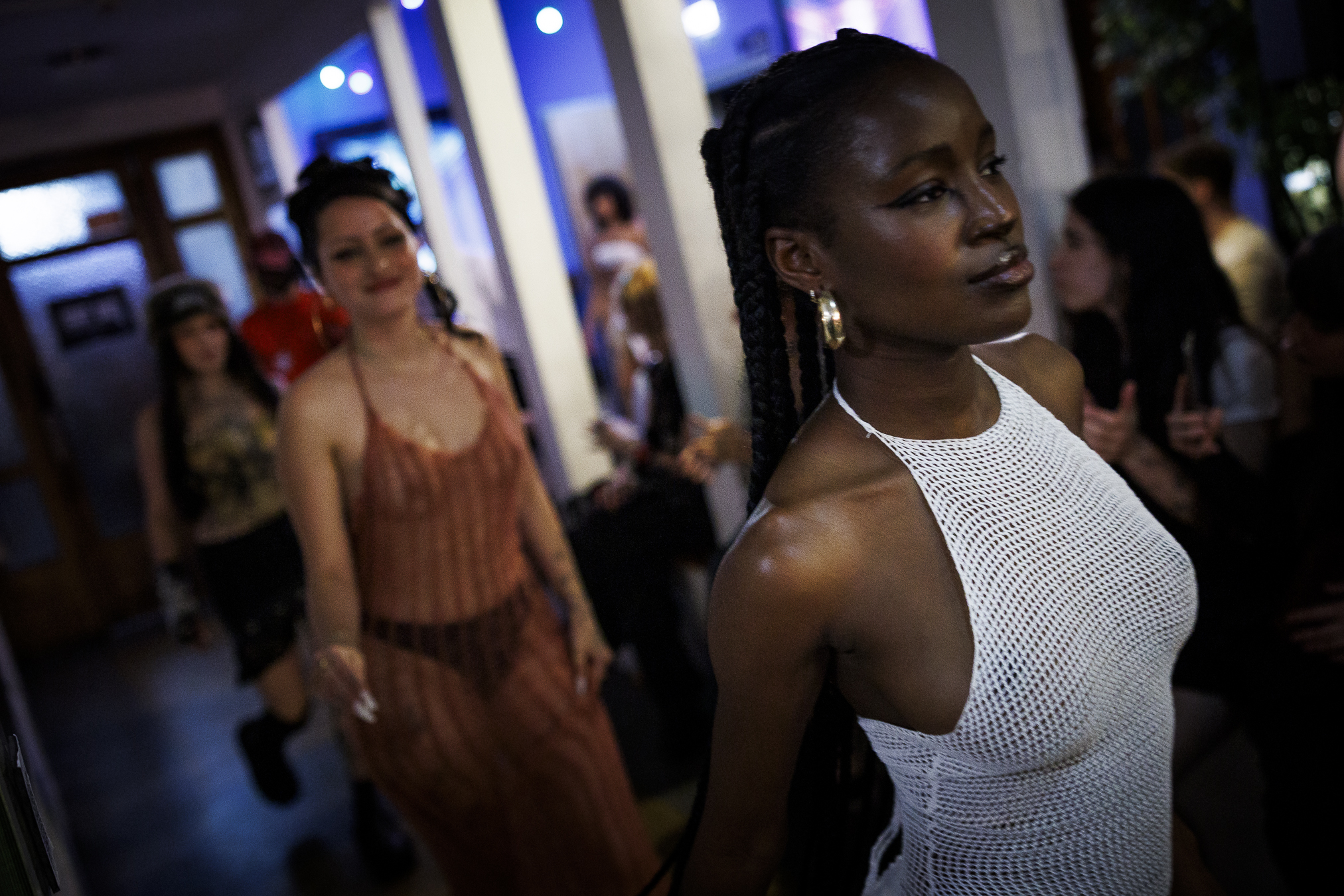
© Guilherme Costa Oliveira
Three photographers stand at the entrance to Maus Hábitos, cameras pointed at the corridor lined with people crowding around the windows overlooking the open areas. To the sound of a pulsating beat, models parade unique and unrepeatable creations. It's not just a fashion show; it's a ‘hot’ couture edition of the Brasa party, with Runnan as the usual host. It's the theme of this edition, but they could easily have been part of an edition with drag or shibari performances in front of the booth, or a vogue night. However, the story of Brasa begins with food.
Runnan is from Natal, in the Brazilian state of Rio Grande do Norte. She has always had a keen interest in cooking (“at home, I was the one who liked cooking the most, so if I wanted to try something new, I would make it myself!”) and at the age of 13 she started selling cupcakes to the school bar. Later, this was the main motivation for her trip to Portugal, as she wanted to learn the art of confectionery. When she met Pedro Colaço, “the match happened not only on an emotional level but also on a professional level.” The duo created a vegan food brand that they sold on the street, but soon the idea arose to throw a party with a unique image. Pedro, who had taken an early interest in the arts through the Soares dos Reis School, took on the communication side—he put together videos and posters that aimed to communicate the profile and texture of the party (“at that time, parties using videos to promote themselves was still something new,” recalls Runnan).
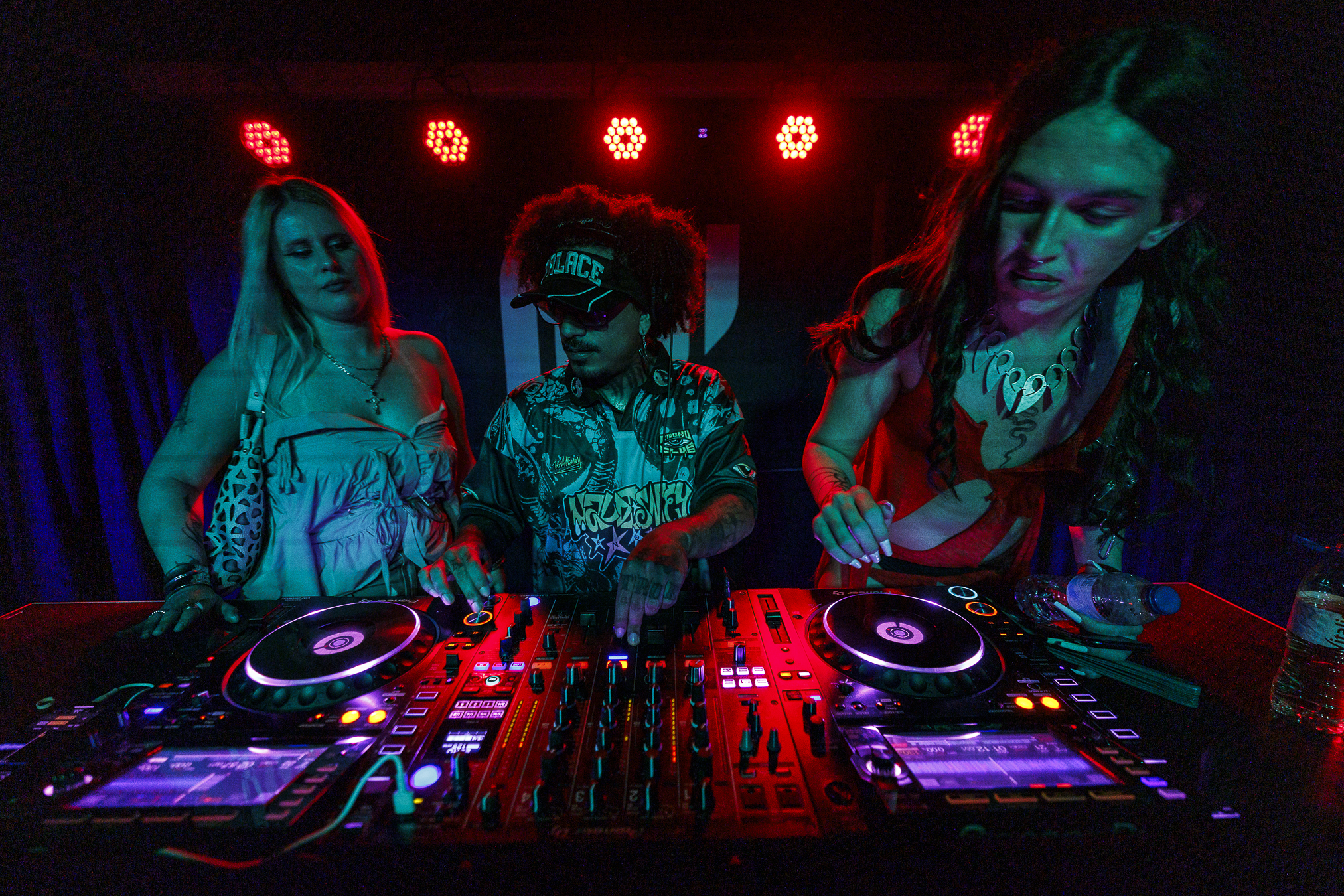
© Guilherme Costa Oliveira
They began in 2023, still at the Lomographic Embassy, and Runnan admits that he was “amazed by the number of people who came.” “We had no production experience, we had no idea if it would go well, but our network supported us a lot, and people showed up.” The street food business continued, partly because the strategy was not to charge admission to the first parties, as a way of creating a loyal audience. But it was here that the Brasa parties began to gain the versatility for which they are known today. Runnan recalls how “one day, the party hadn’t even started yet, and Luísa Vida, well known in the Belo Horizonte ballroom scene, walked into the room.” “I was just testing the sound, and she immediately started voguing [a dance inspired by the poses of models]. I talked to her right away, and she even proposed that we partner up for a vogue night,” he says.
Today, Brasa has a regular venue at Maus Hábitos. This change came about thanks to a proposal by Luís Salgado, the venue's programmer. “We didn't have the nerve to think we could hold the party here, but in a way we were manifesting this opportunity. And everything has been great, we have received a lot of support from the whole team at the venue, colleagues in the area.” For anyone who wants to join, Runnan makes it clear that the atmosphere is one of “diversity, and we care that everyone feels comfortable.” “We don't believe in separating audiences, we believe in unity with respect, love, and freedom.” And despite the careful visuals in the communication of the parties, the audience should feel that they can come in the most authentic way they feel: “things like a dress code would be unthinkable for us.” The next party will take place on July 4 with Brasa in the usual format at Maus Hábitos (starting at 11 p.m.), where you can enjoy a mix of electronic beats, heavily influenced by funk and Latin rhythms, as well as detours into genres such as techno, drum n bass, jungle, brega funk, among others. On August 9, Brasa will promote a new edition of Lombra, a themed party with a location and lineup to be announced.
Fylhas do Dragão
The Fylhas do Dragão are now four sisters, but they started out as “twins separated at birth,” according to António Ónio. The other half of this original duo is DJ Giovanna, and later the family expanded with the arrival of Maria João and Will. “Giras, bouas e dragonas” (cool, good, and fierce), the motto of this DJ collective, is almost a mnemonic device—they spin high-energy, euphoric records, celebrate the fiercer side of life, and their relationship with one of the city's soccer clubs embodies a mission of total inclusivity. According to Ónio, for Fylhas do Dragão, inclusivity “should include everyone, not just a few niches,” so the use of a symbol of affection in the heteronormative world is another bridge built so that people outside the queer universe can also feel comfortable and safe at these parties.
Giovanna and Ónio met in the world of performance—they both participated in Coletivo A Leste and later joined as a duo in the theatrical artifacts of “Meter o dedo na ferida” and “Mega Pop Show.” The affinity was complete when Ónio invited Giovanna to play with him on a clubbing night at Ferro—the partnership in the booth was sealed with fire. But that didn't mean performance was abandoned by Fylhas – even today, there is extra work in the scenography of the spaces that host the parties because, according to Giovanna, “we care a lot, we spend hours doing this.” “We also want people to care, to see all the handmade work and realize that it was all for them.”
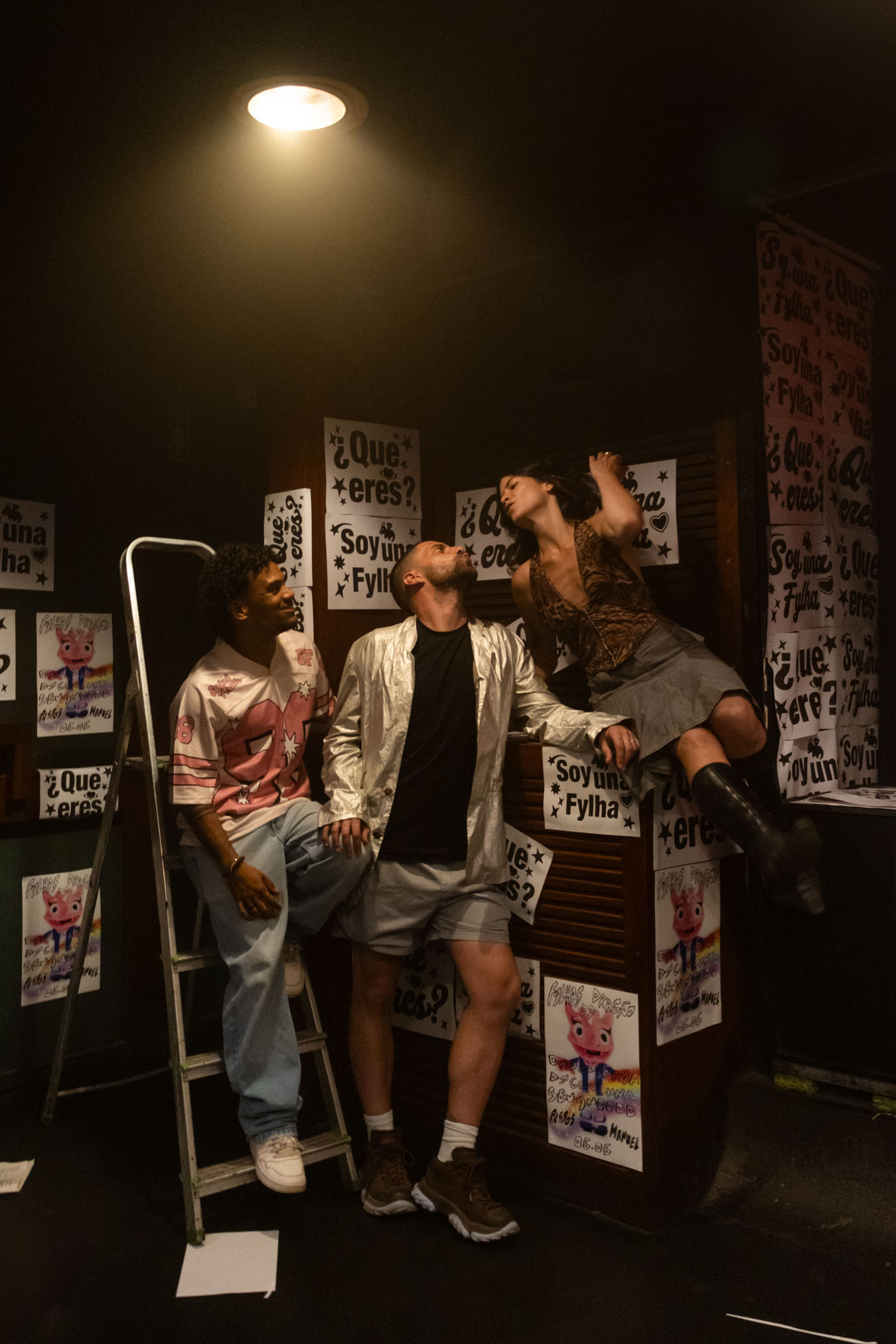
Will, António Ónio and Giovanna © Andreia Merca
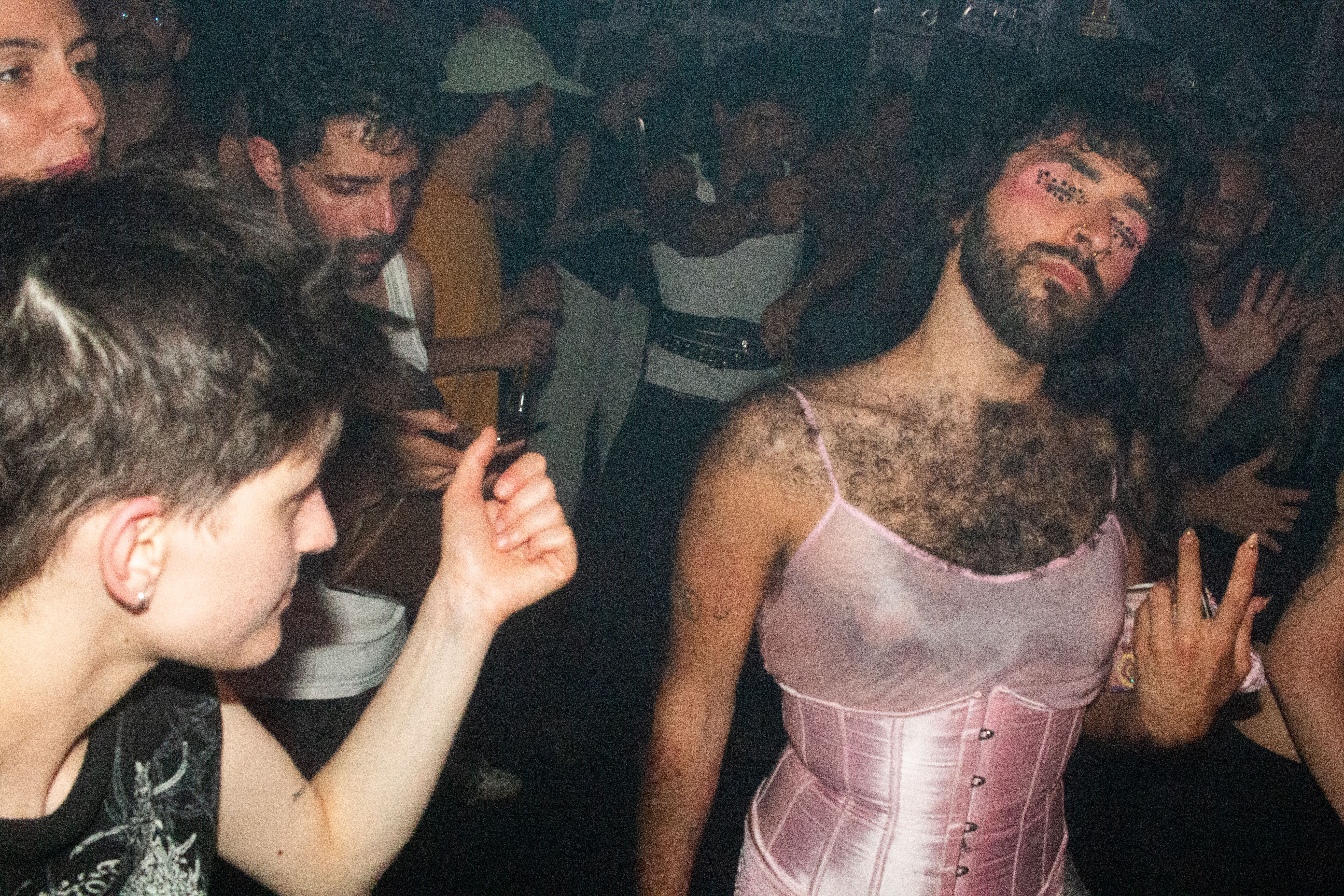
© DR
The Fylhas do Dragão have their center of gravity in Passos Manuel, but they have already traced orbits that have taken their parties to venues such as Musa das Virtudes, Ferro, and the Faculty of Fine Arts of the University of Porto. Outside this Porto system, they have already gone international with parties in Vigo, Coruña, Geneva—and this month they will be participating in Berlin.
Closer to their center of gravity, Fylhas do Dragão will play on July 27 at the Bouça Residents' Association, and on August 23 at Bácoro. What you can expect from one of these parties is in the different voices that are in Fylhas' DNA: while Giovanna confesses a greater affinity for the Latin American sounds of a “bandiva,” Ónio tends to “lean more toward techno”—and to this matrix are added the likely and unlikely condiments of the guests on each date. But if you want to know more, there's nothing better than contacting Fylhas directly: “We care a lot about our digital footprint; we respond to all the messages we receive on social media, but don't expect a serious, corporate response [laughs].”
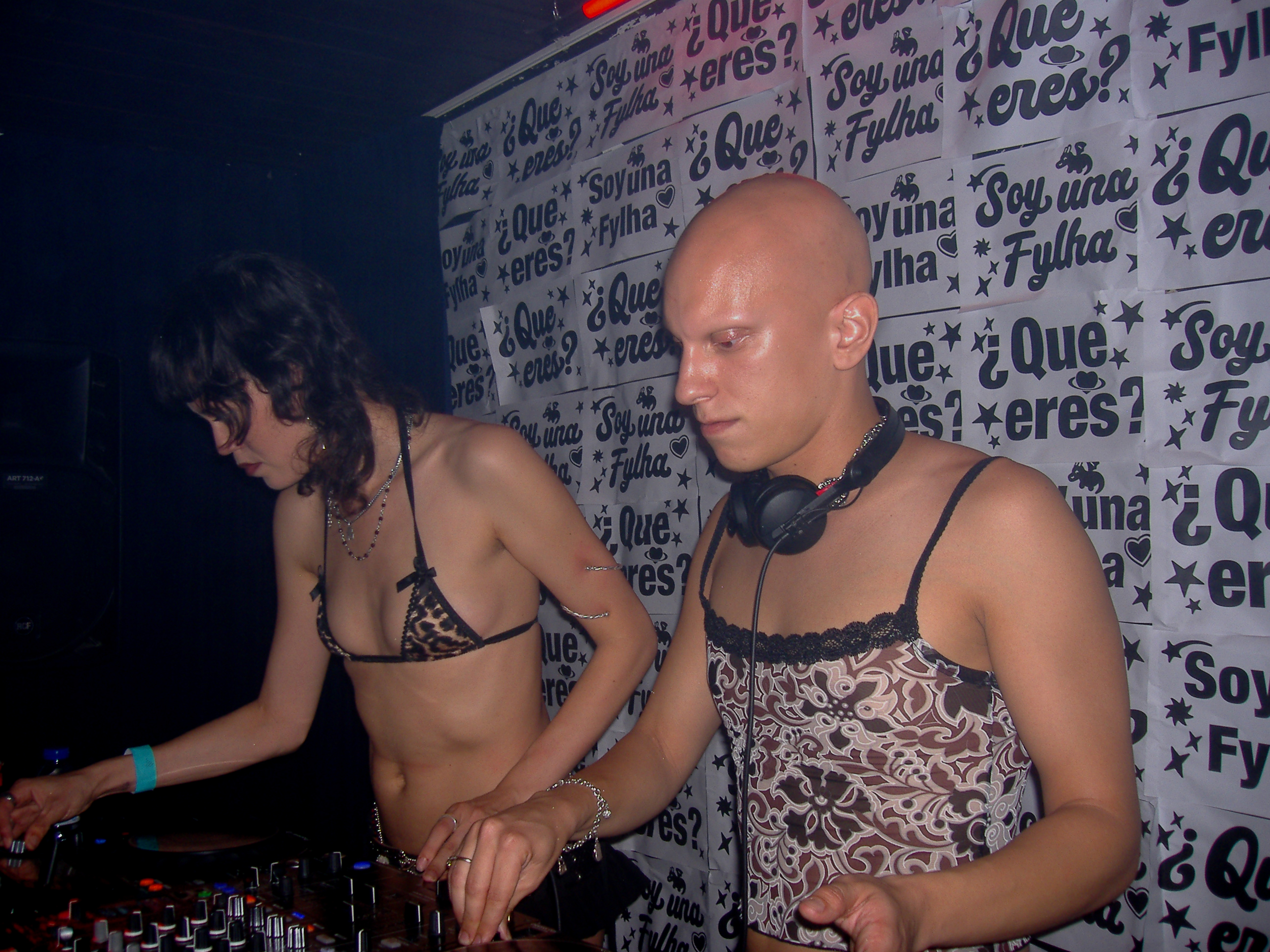
© DR
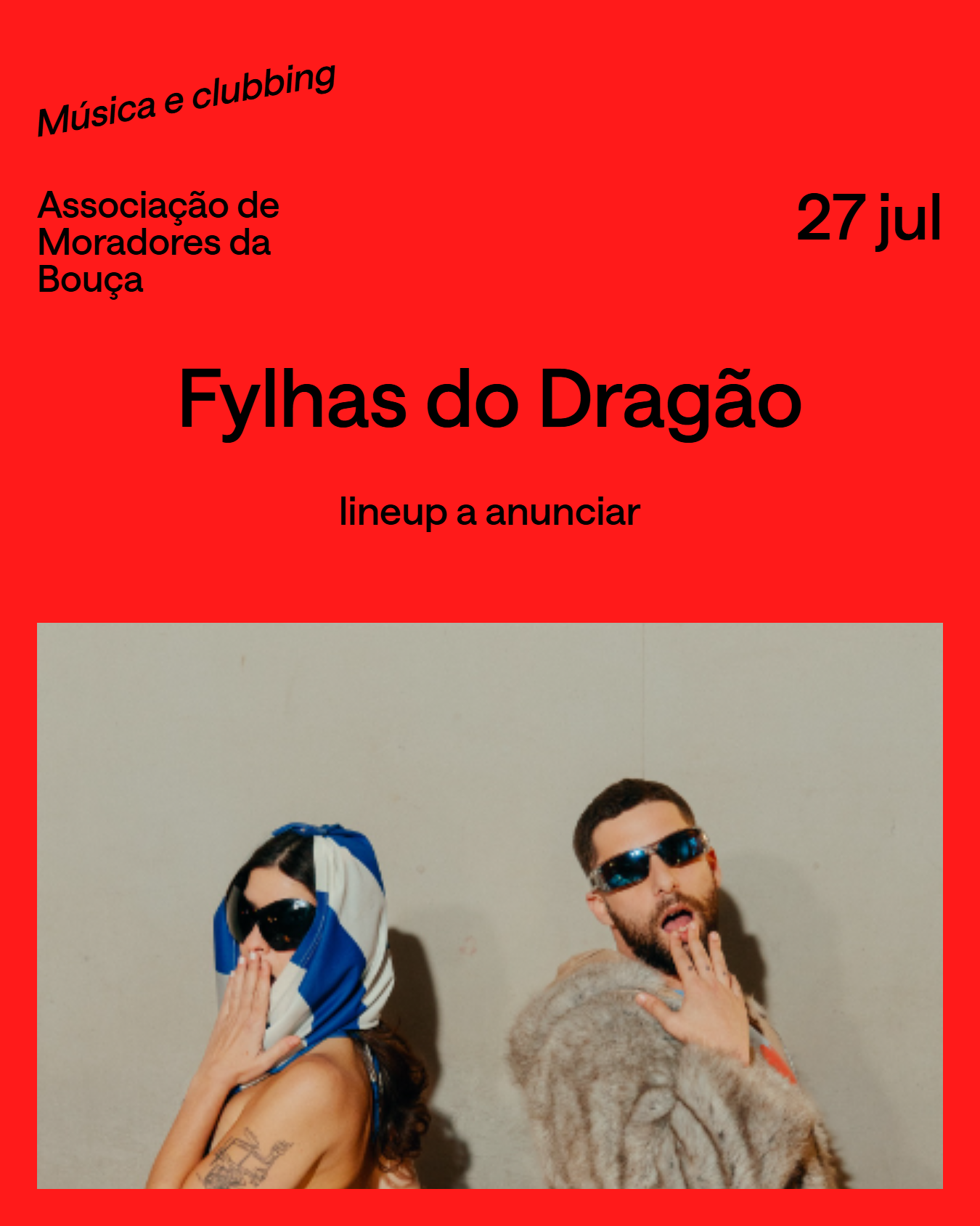
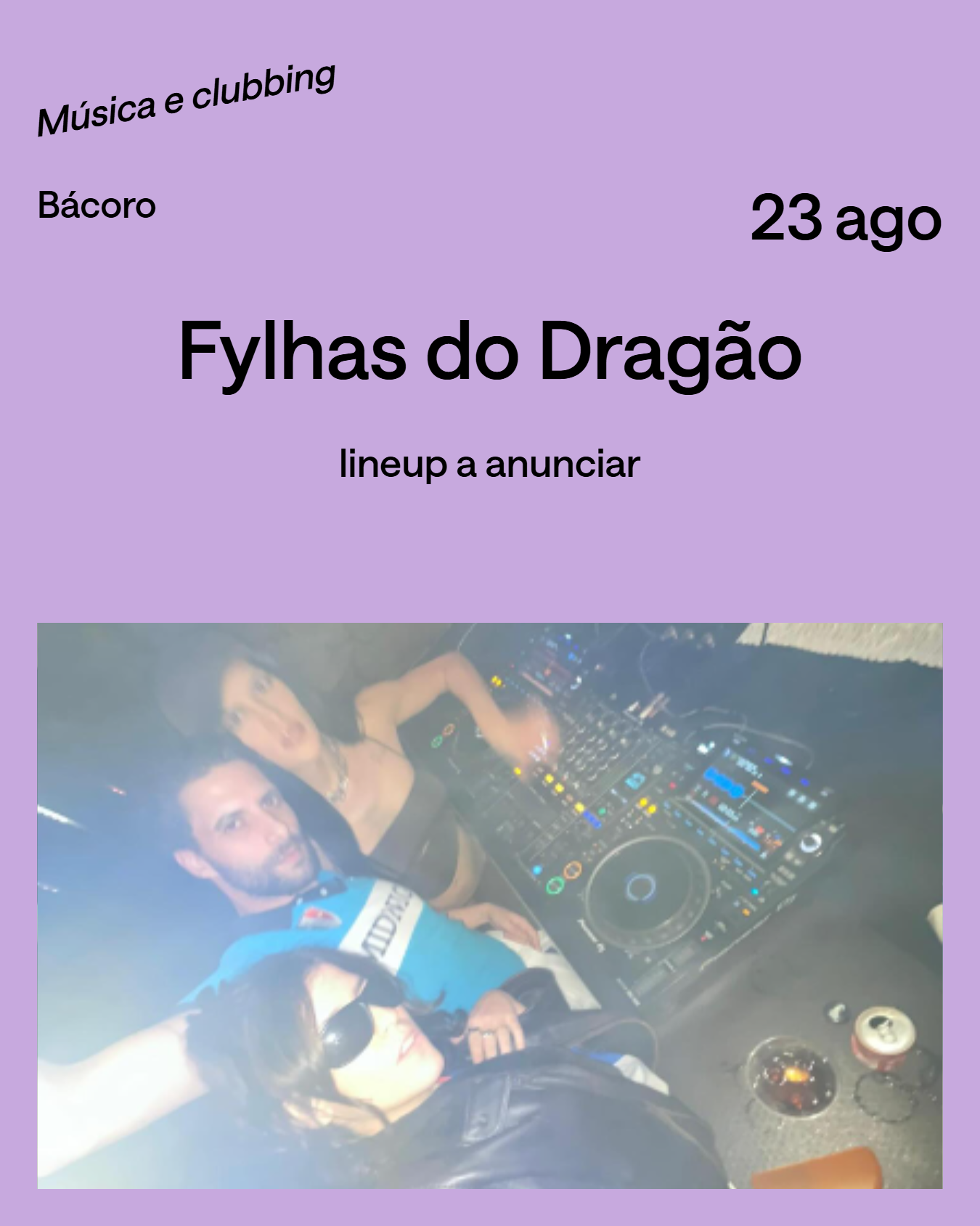
R4W
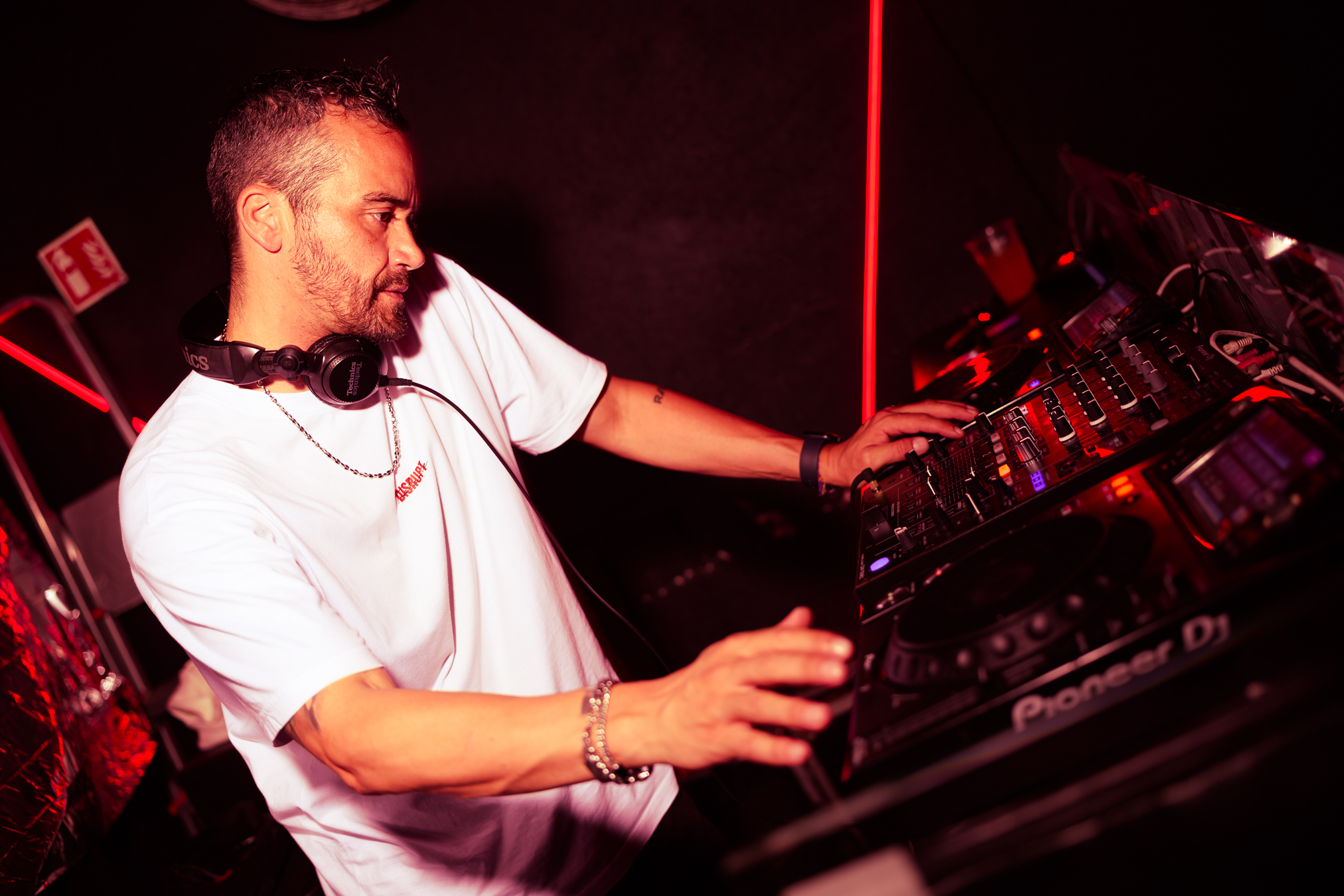
© Nuno Miguel Coelho
Pedro Tabuada points to the pandemic as the beginning of R4W: “I always dreamed of creating my own identity in Porto's nightlife scene, and in that context of everything being closed and people being apart, I started talking to a friend about the outlines of what we wanted to do.” And those plans, basically, referred to the golden age of house music in Porto: “that concept of a nightclub that seemed to be disappearing from the city.” So they started at Baixa Bar. “In the beginning, it was crazy; you could see that niche was missing.” And it was also at that point that they defined one of the main ingredients—being a party that takes place on Wednesdays, the day of the week that always seemed most appealing to Pedro.
But the most important ingredient at R4W parties is always the people—although Tabuada prefers to use the word family. “After a year, when I was writing a thank-you note to those who had participated as DJs, I was amazed to see that we had 66 names!” Although several of these participants are already well known, Pedro also sees it as his mission to give an opportunity to those who have not yet managed to break into the nightlife scene. “I am proud to have opened these doors, because here in Porto there are many small closed circuits.” To find these names, there are no shortcuts, just a lot of work: listening to sets and researching.
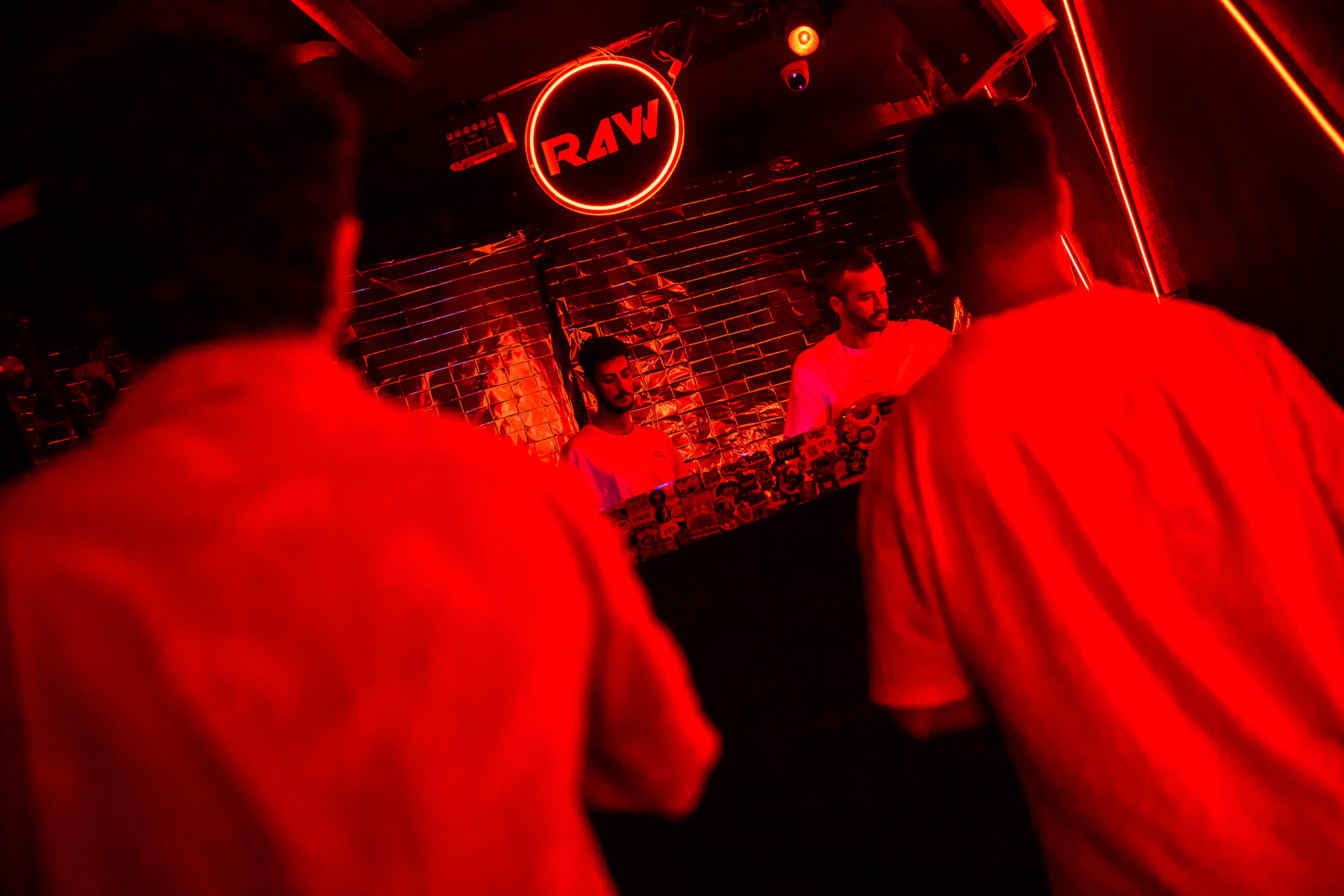
© Nuno Miguel Coelho
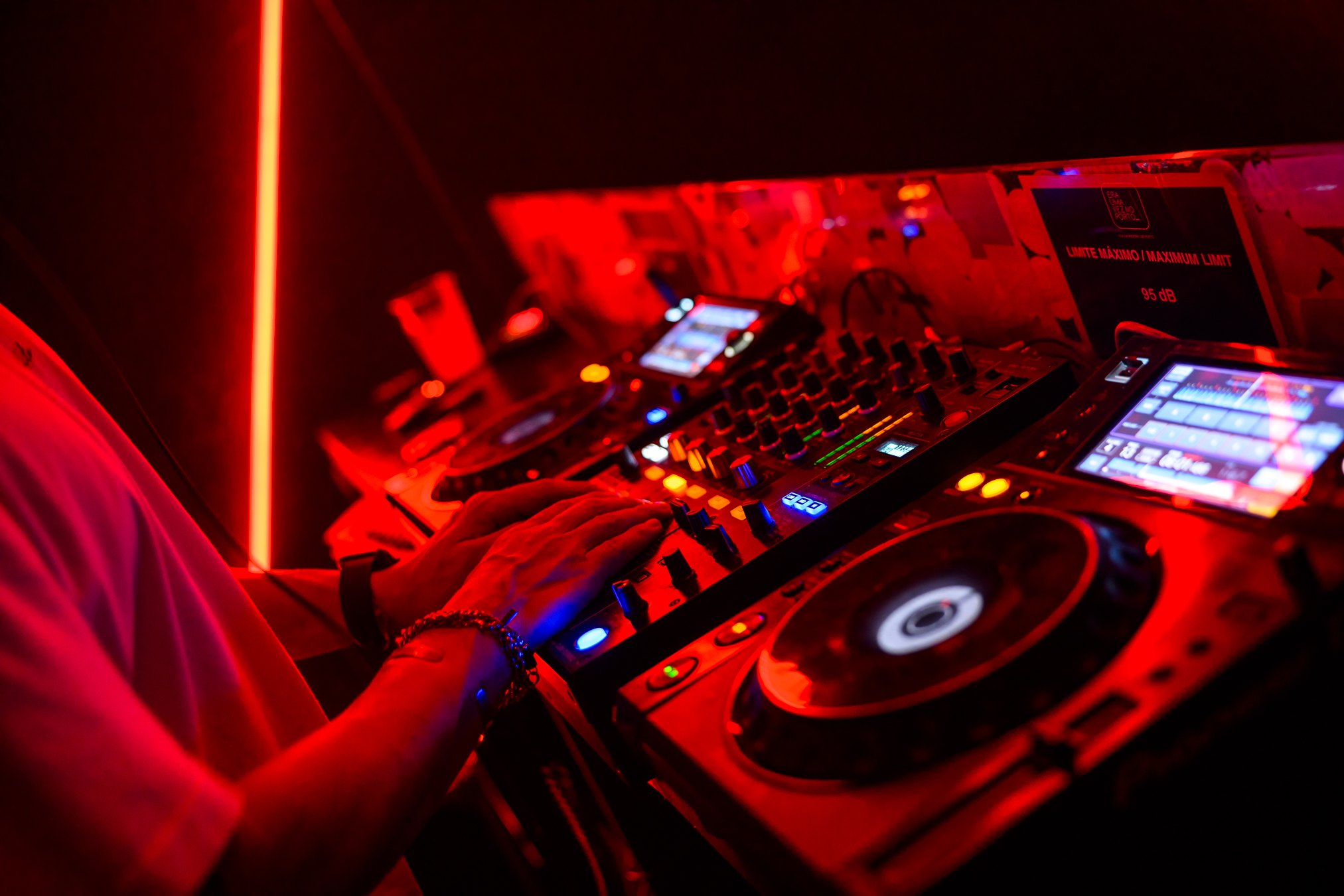
© Nuno Miguel Coelho
This definition of family also extends to the audience that gathers to dance: “Even when I'm performing, I always like to be aware of who's coming, to know who they are, if they're okay.” This embracing of the audience as family might seem like a cliché, but on the Wednesday we attended an edition of R4W, the DJ booth was where each person who arrived checked in with a hug and a handshake. Tabuada, the first act of the night, jumped between the dance floor and the mixing desk, and even at the entrance, there was always time for a chat with whoever was working the door.
R4W parties take place with the regularity of beats per minute: always on Wednesdays, always at midnight. Although in its second year of existence they had migrated to Ferro, about a month ago R4W moved to Era Uma Vez in Porto. On the day, just follow the flag planted on Rua da Madeira. Musically, what to expect is, in the words of Pedro Tabuada, “a different kind of atmosphere, more beautiful, more cheerful. Not as dark and heavy as you tend to find in dance venues.”
Share
FB
X
WA
LINK
Relacionados


